Thanks to Marek Kohn, who wrote the below article.
What the Razom Ukrainian Gathering in Brighton has become, nearly two years on.
The Sunday afternoon Razom gathering at the Rose Hill n March was, as always, a warmhearted occasion for Ukrainians and non-Ukrainians to share food, songs and each other’s company. It was also the last for a while, pausing for the Ukrainian community’s busy spring and summer calendar of events. That gave us an opportunity to look at how far we’ve come, and what we might do in the future.
When we started planning what became Razom, after Ukrainian refugees began to reach Sussex in the spring of 2022, we knew that we wanted to provide Ukrainians with a space where they would be welcome and comfortable. We also wanted to provide opportunities for Ukrainians to practice their culture and share it with non-Ukrainians. (That meant, first and foremost, food and songs.) Razom, ‘together’, meant Ukrainians gathering together with each other, and with non-Ukrainians too.
Nearly two years on, that ‘we’ means something different. Ukrainians have become part of the larger community. We have drawn together. And the wider community is becoming more aware of Ukrainian culture too. This time at the Rose Hill, we – the Razom organisers, that is – were excited to see many new faces. That’s a trend we’ll work to continue when Razom re-starts in the autumn.
It was also a real pleasure to watch Dina Shenderetska and Polina Loubnina, who performed some new material, and to appreciate how much they have developed as artists over the course of their many performances on local stages.
Brighton’s Ukrainian Voices choir, now under the leadership of Lyudmila is likewise going from strength to strength. They began their set with three songs to greet the spring, and then sang brightly about hope. Against the background of sombre news from the homeland and pessimistic commentary from Western media, that was especially welcome.
We were also delighted to welcome Iryna Muha, who was born in Ukraine and is part of Nottingham’s long-established Ukrainian community. She played a Ukraine benefit at the Rose Hill last year and we’d wanted to bring her back ever since. After an appearance the previous month at a folk festival in Kansas City, Iryna brought her hurdy-gurdy and guitar to Brighton for a set of her own and traditional Ukrainian songs. As always, the last part of the afternon was the open-mic session that captures the spirit of the community, with the now-traditional rock finale led by Anastasiia Bohdanova. To close the occasion, because it will be the last one for a couple of seasons, Anastasiia led the singing of the Ukrainian national anthem.
The gathering featured a new departure for Razom: spoken word, in Ukrainian and English. Naomi Foyle, a local writer and editor who has been involved with Ukrainian literature for some ten years, came along to talk about the books she has helped publish with Hove’s Waterloo Press, in conversation with Vladyslava Bondar, a community organiser and our regular Razom MC. Speaking of her collaborators in Ukraine now, Naomi observed that ’there’s a really strong existential sense of the importance of getting Ukrainian literature out there and translated.’ The first of Waterloo Press’s Ukrainian books was A Flight Over the Black Sea, by Ihor Pavlyuk, published in 2014. It’s a collection of his poems in two languages, with English translations by Steve Komarnyckyj. Vladyslava read several of the original Ukrainian poems, and Naomi followed with the English versions, allowing English speakers to appreciate the poignant allusions to Ukrainian landscape and nature.
Their collaboration was fluent, moving and powerful – which was all the more remarkable for the fact that they hadn’t met in person until about half an hour before their spot. It conveyed the deep commitment to Ukrainian culture of two women from different countries with a profound understanding of why that culture is so vitally important now. ‘Thanks to our friends’ help, and thanks to our brave defenders and people in Ukraine, we still know who we are, and this culture will still thrive, thanks to people like you,’ Vladyslava told Naomi, who was wearing a small medal she was awarded in recognition of her poetry and essays on Ukraine. It bears the image of Hryhorii Skovoroda, an 18th-century Cossack philosopher and poet. To her dismay, Vladyslava told her that his memorial museum has been wrecked by a Russian attack. (According to reports, however, many of the museum’s contents had been previously been removed to protect them.) Culture is a target in Russia’s war against Ukraine.
The conversation, (available as a podcast) was an inspiring demonstration that there are unexplored possibilities for poetry and literature in our local cultural exchanges, whether at Razom or in standalone events. The afternoon as a whole gave us – Ukrainians and non-Ukrainians together – encouragement that we will find creative and enriching ways to help sustain Ukrainian culture in our city, as well as sustaining the warmth that is at the heart of Razom.
Marek Kohn is a co-founder of Razom and, with Vladyslava Bondar, the Kupala Brighton project, an exploration of traditional Ukrainian culture.
Naomi worked for Waterloo Press and has a history of publishing Ukrainian literature in the UK. She is Reader in Critical Imaginative Writing at the University of Chichester’.
Further information on Naomi’s work on Ukraine can be seen in the links below.
Writing with Foreign Blood: A Visit to Ukraine
Naomi Foyle/Ukraine
Vladyslava is originally from Ukraine currently living in Sussex. She is community organiser, activist, co-founder of Kupala Brighton (with Marek Kohn ) and member of the Razom organising team.
Thanks to Marek for suggesting the idea of a Ukrainian literature reading as part of Razom and introducing us to Naomi. Marek is also a member of the Razom team.
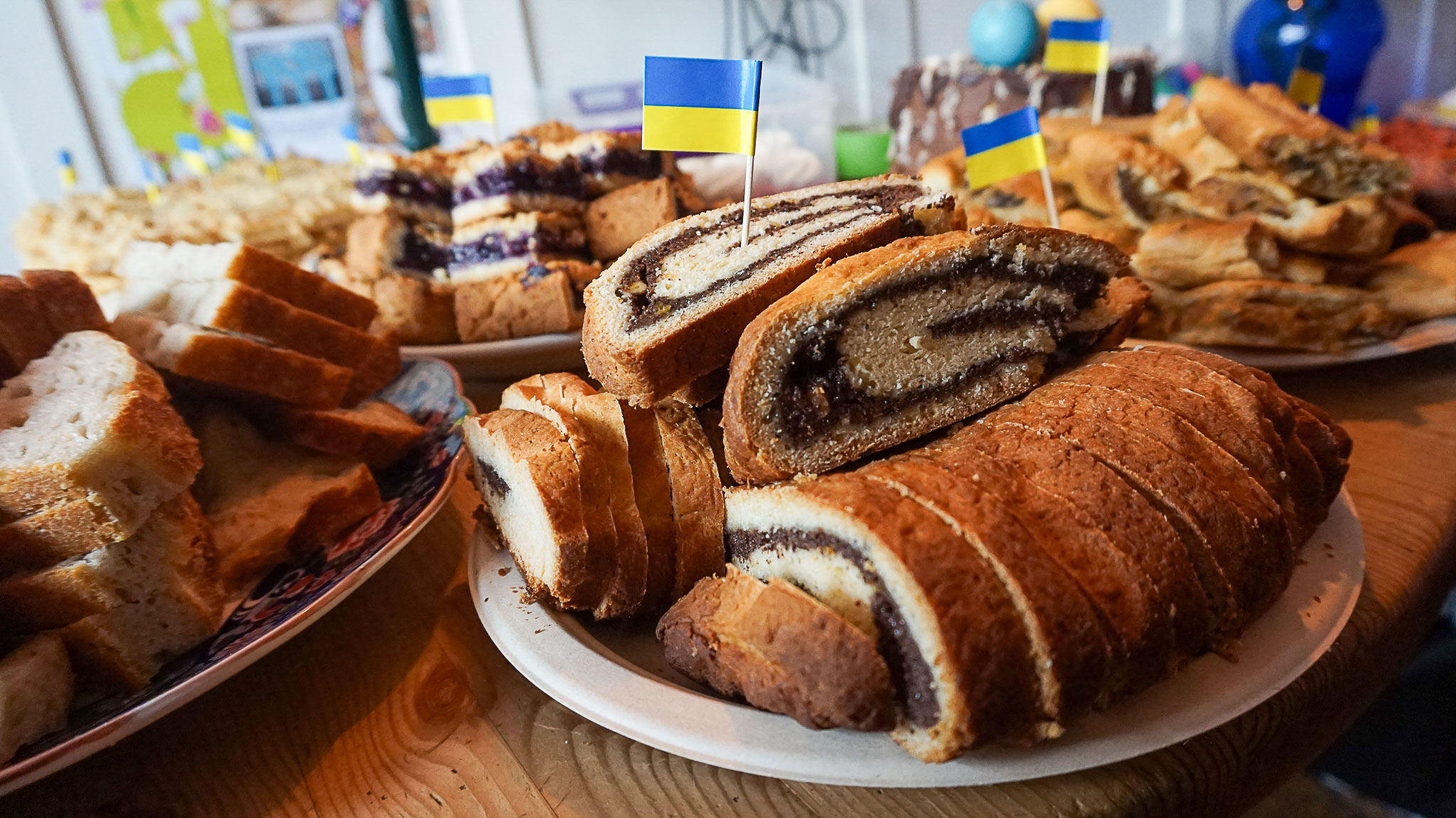
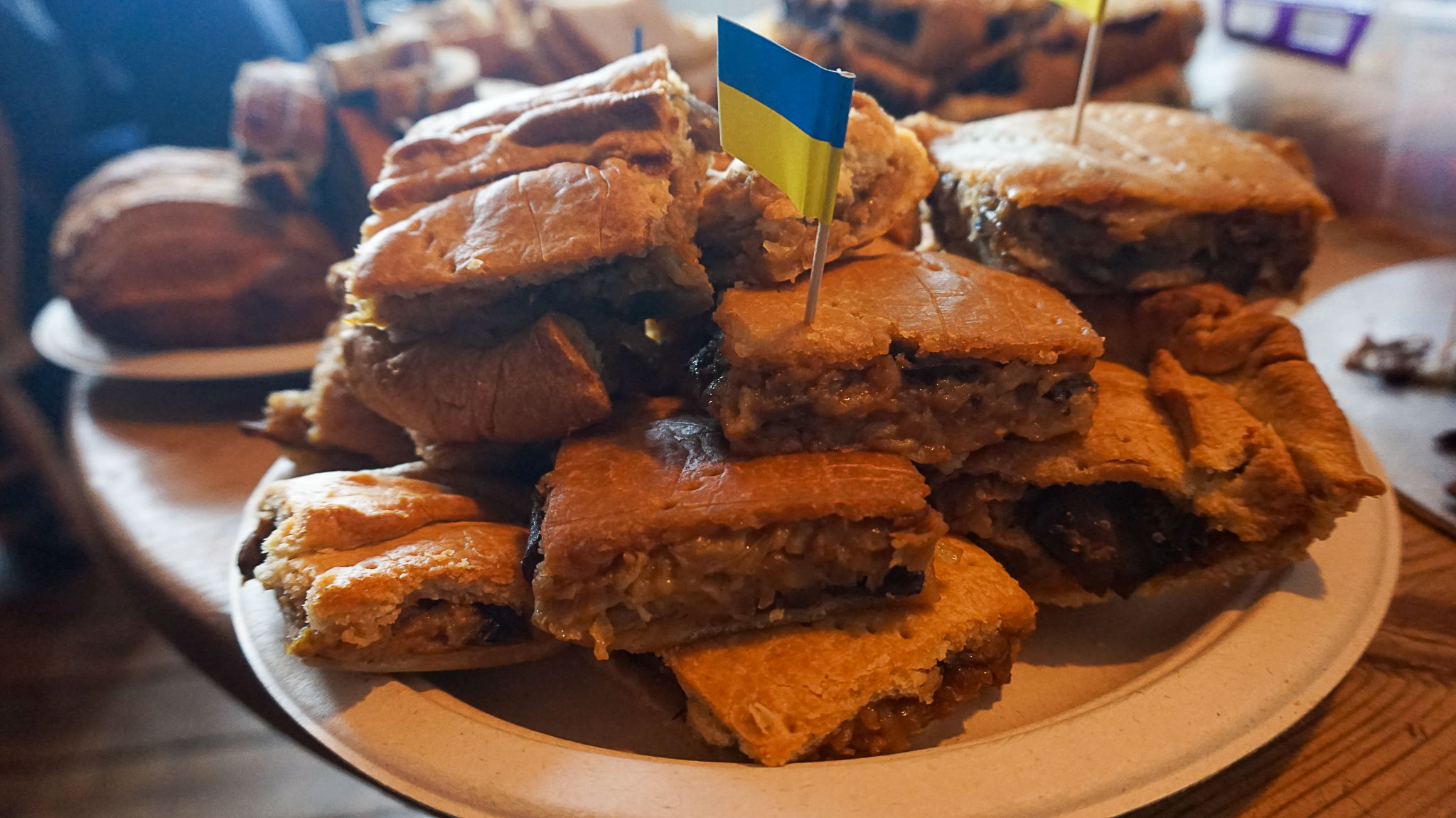
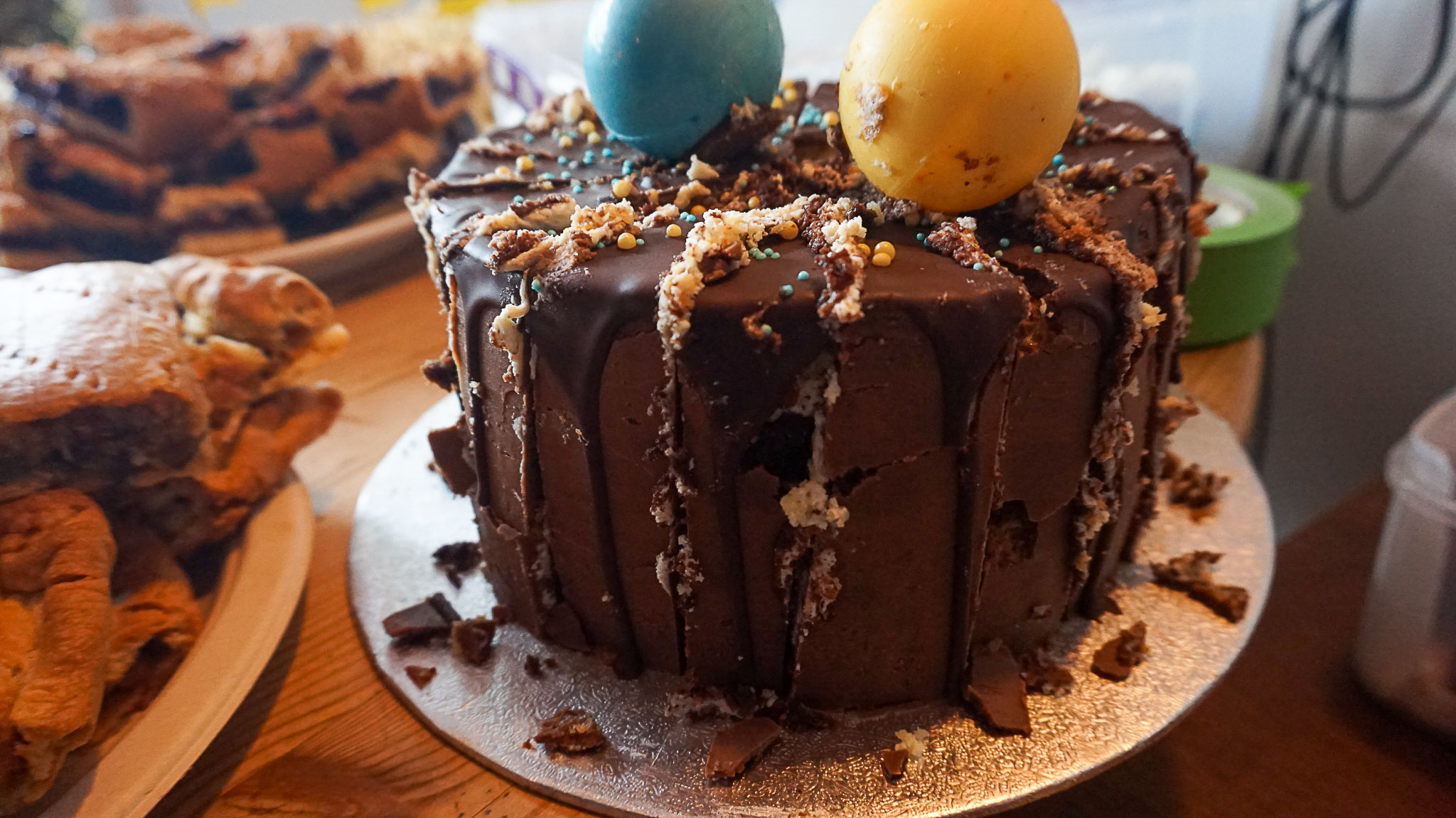
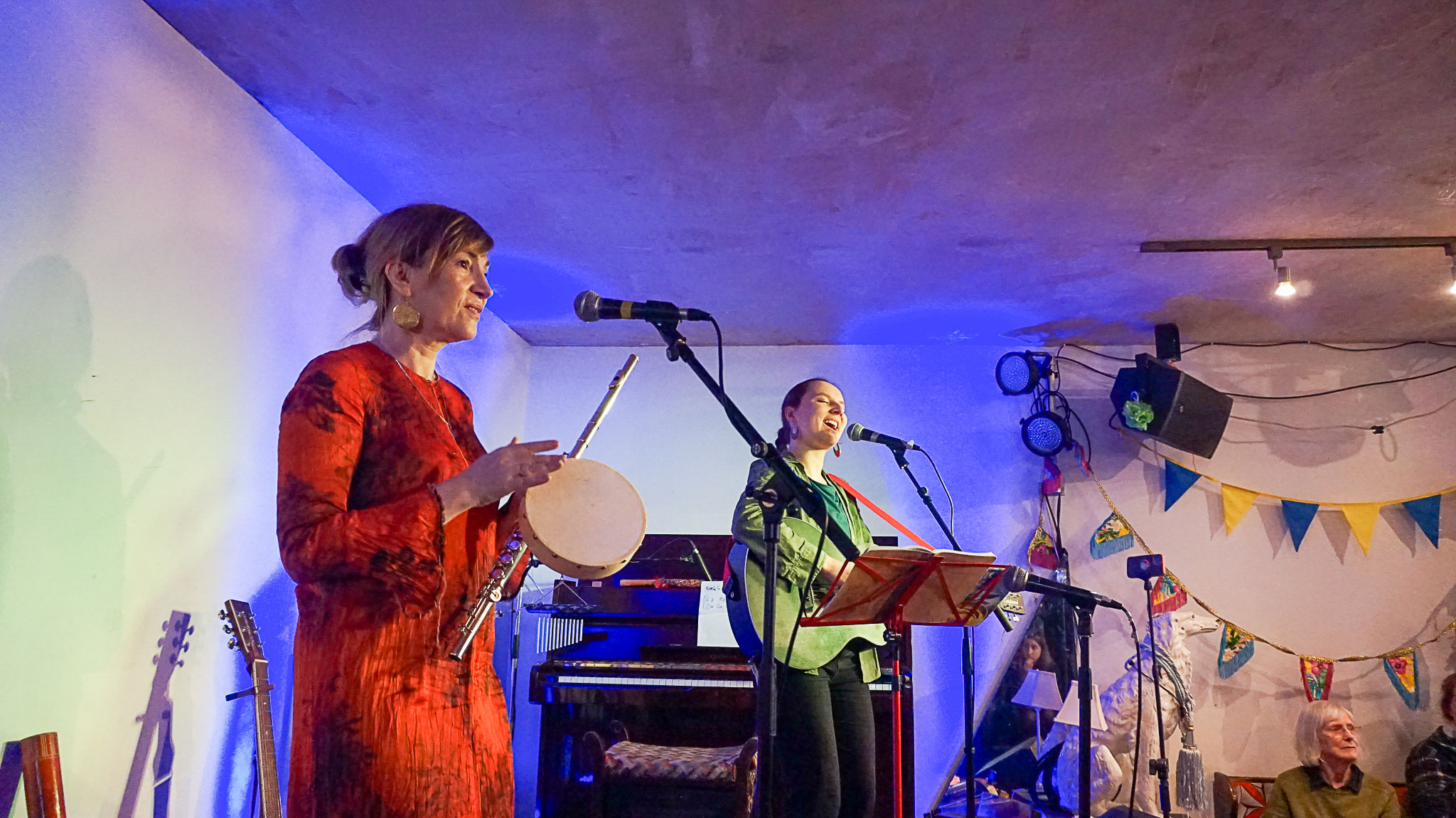
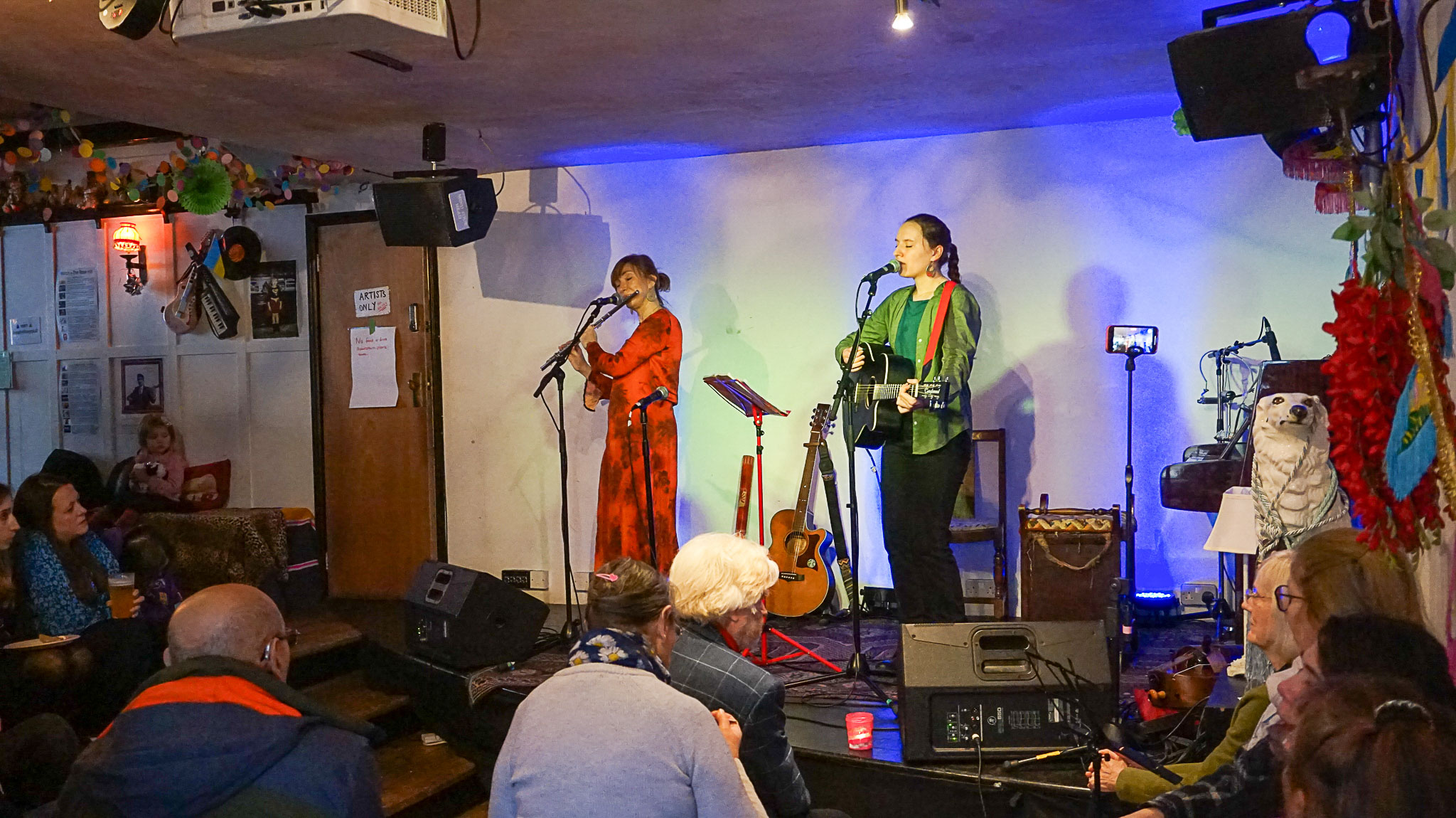
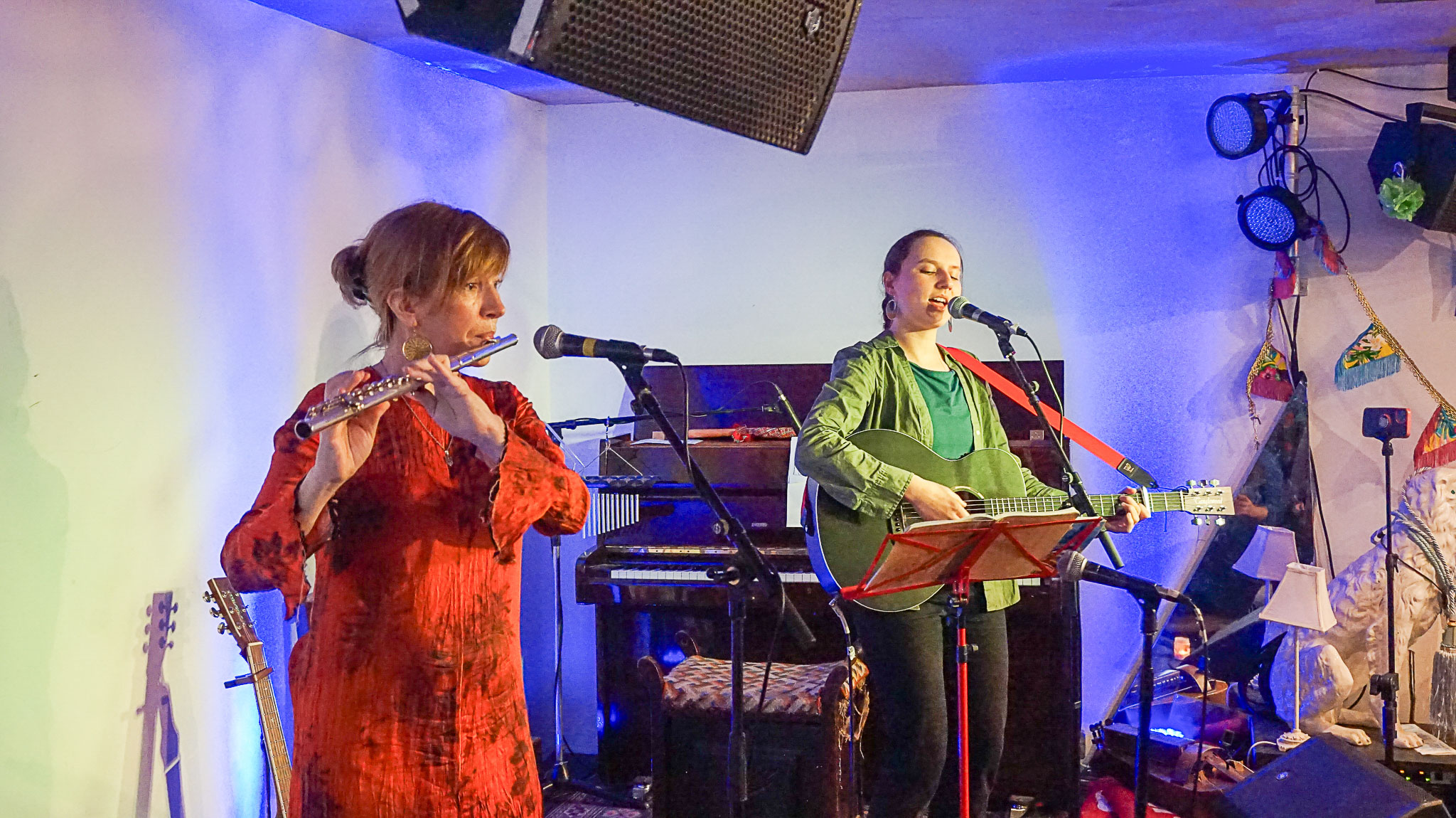
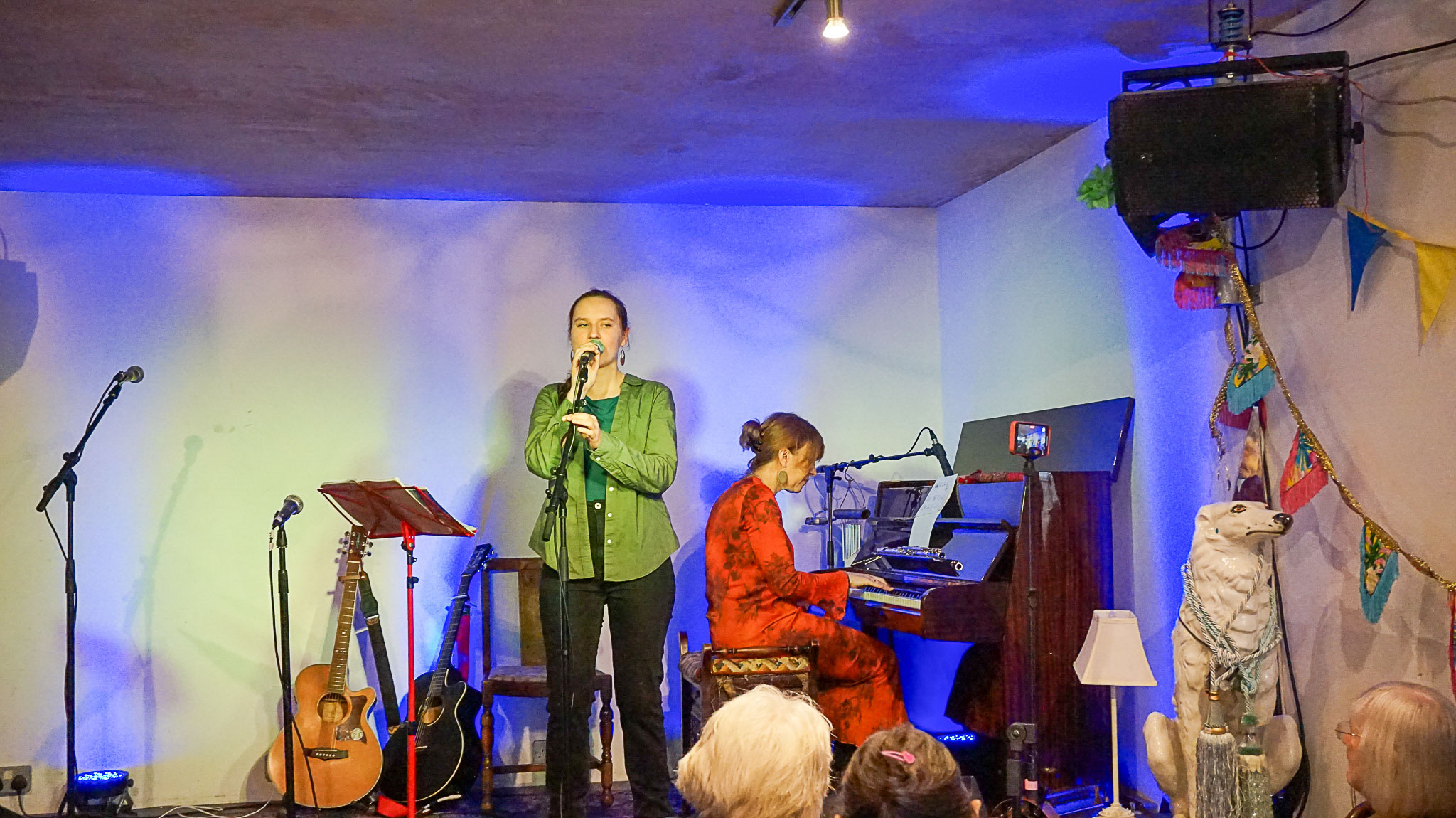
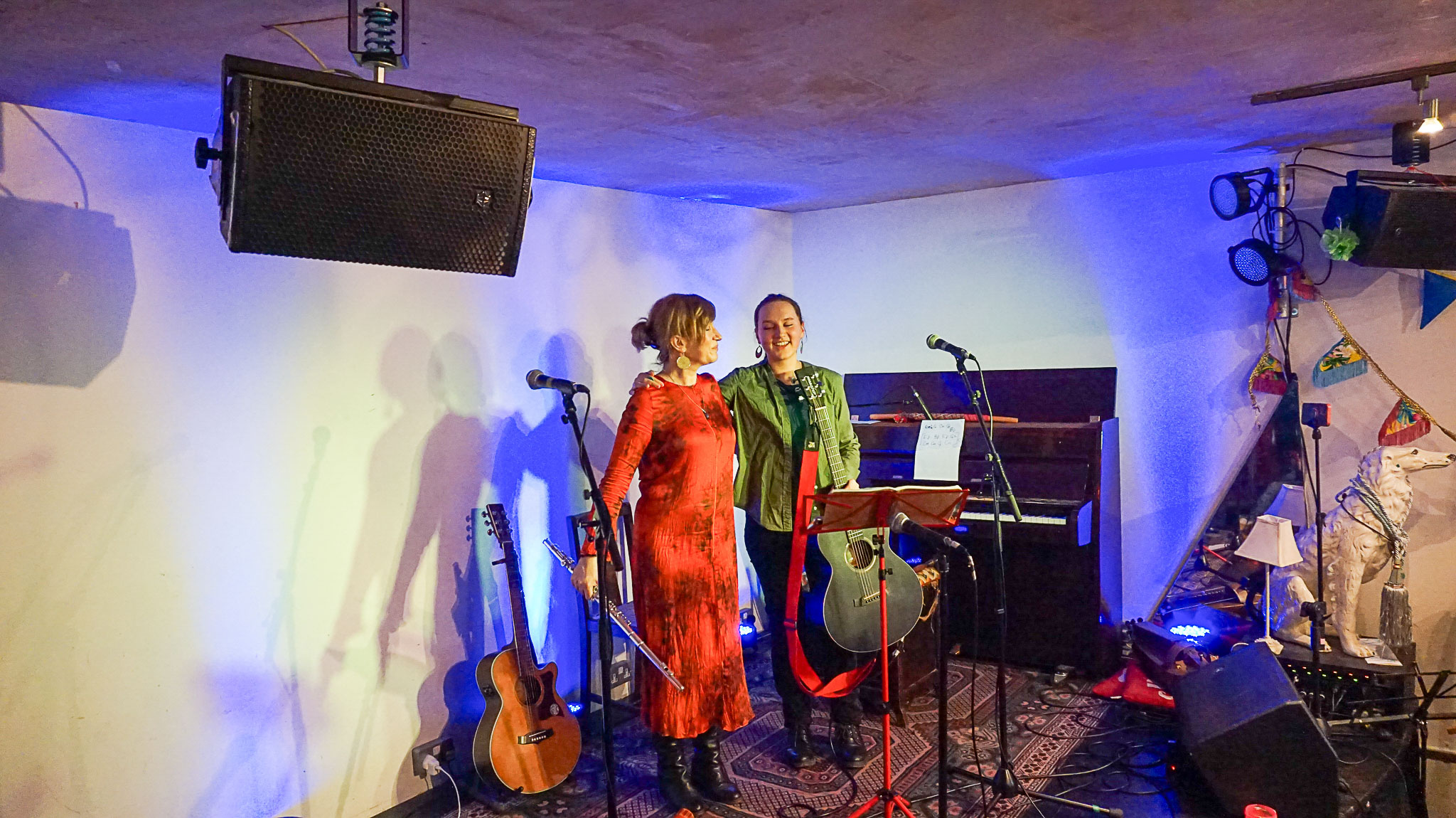
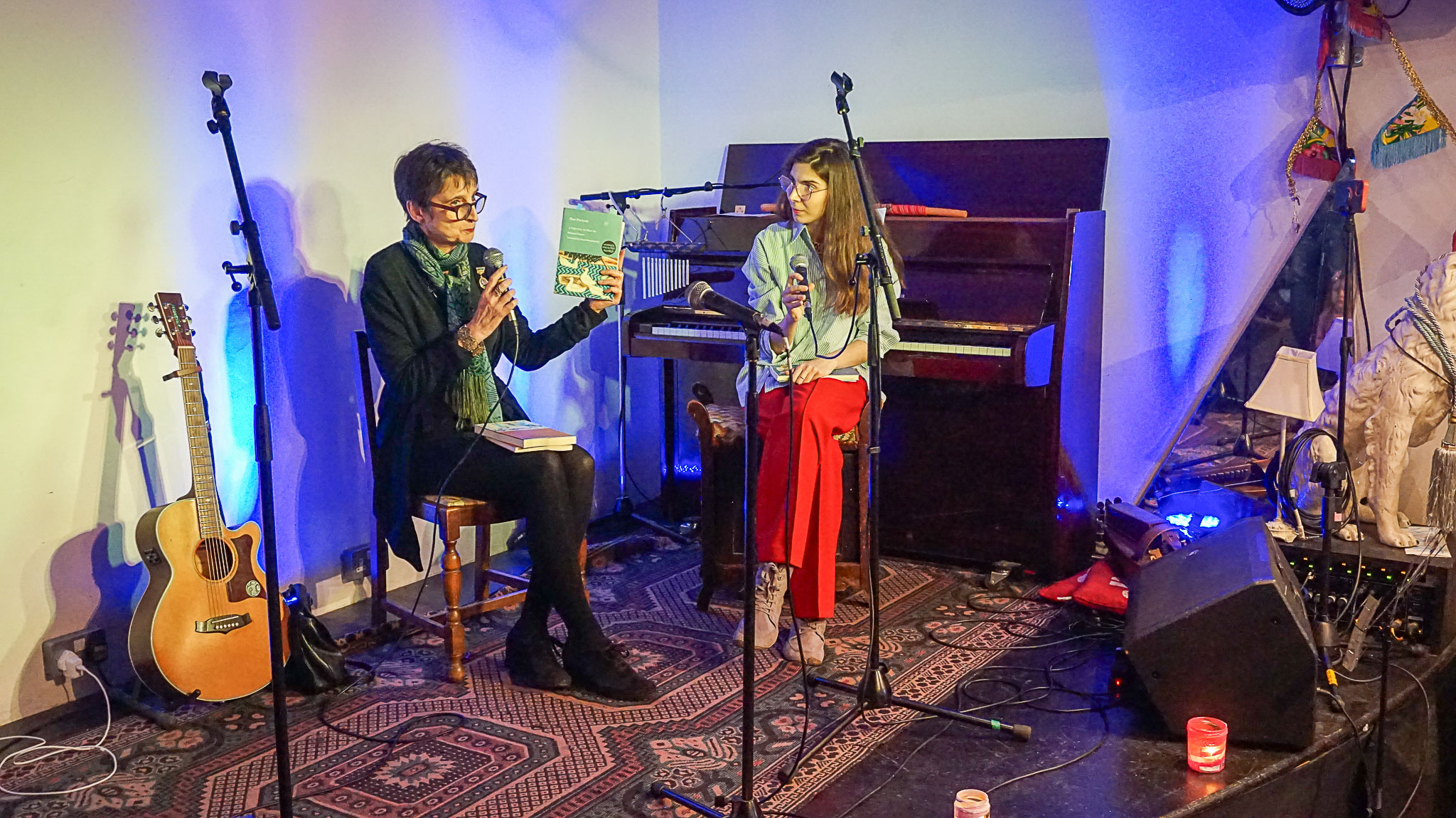
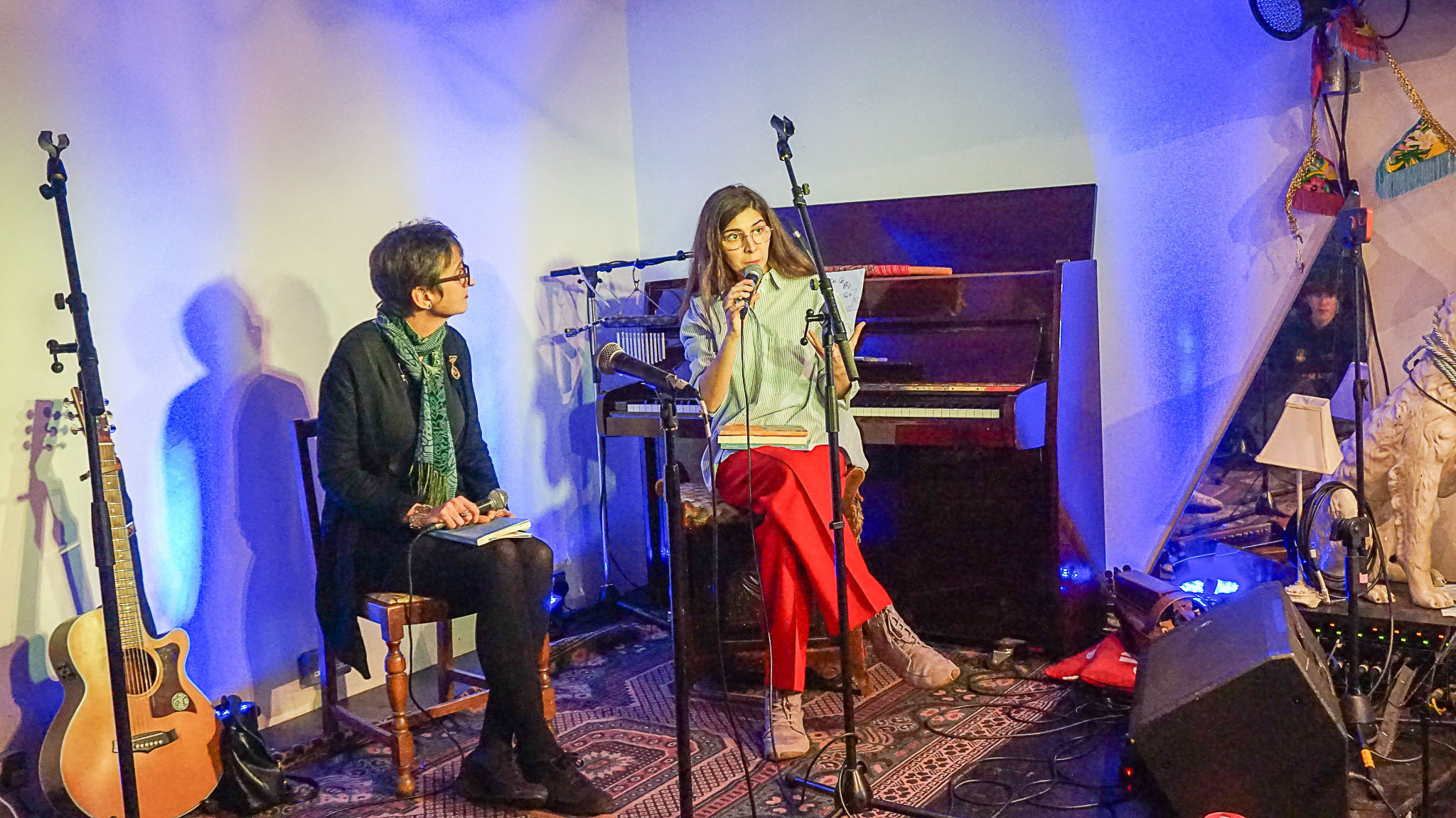
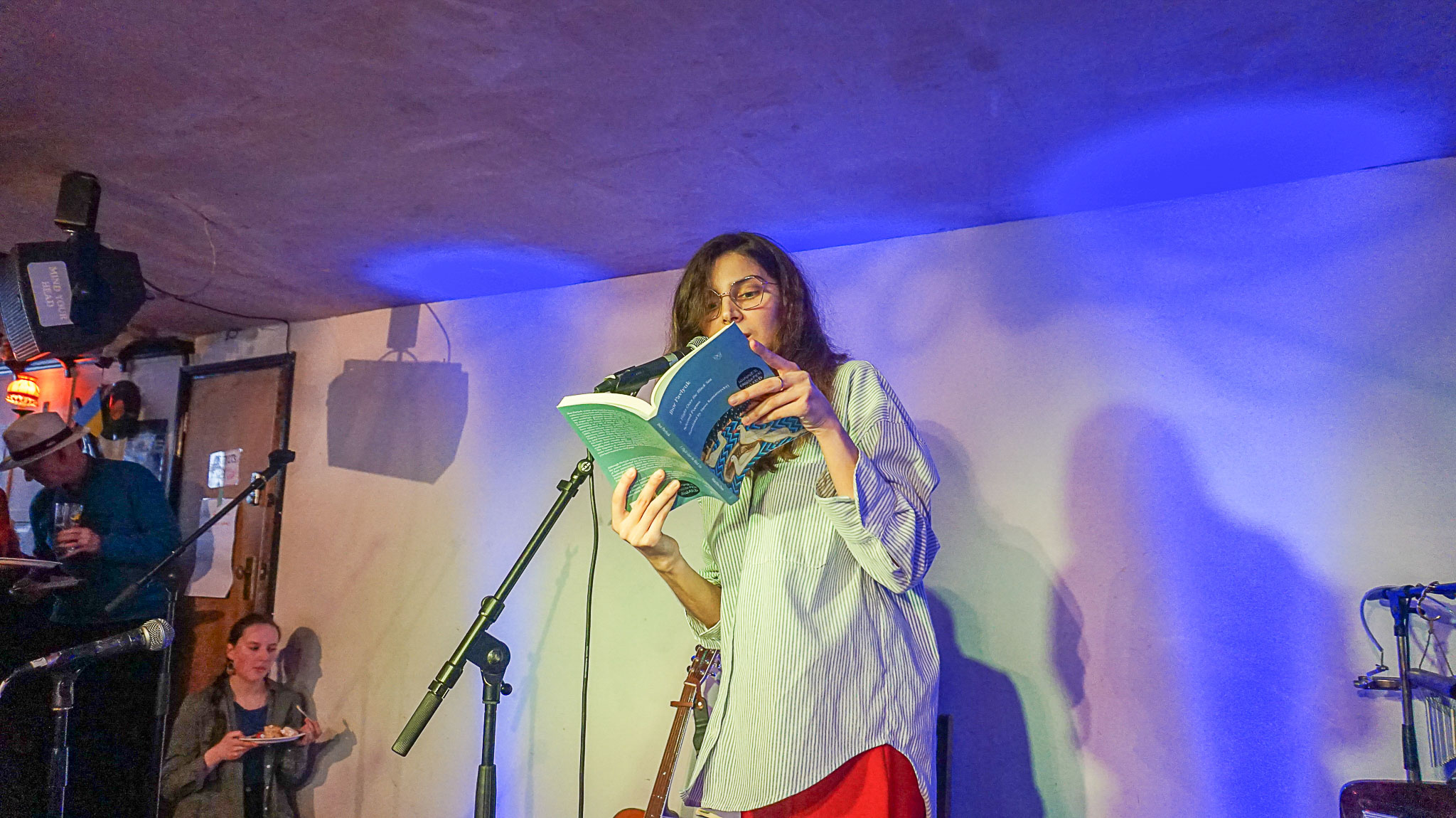
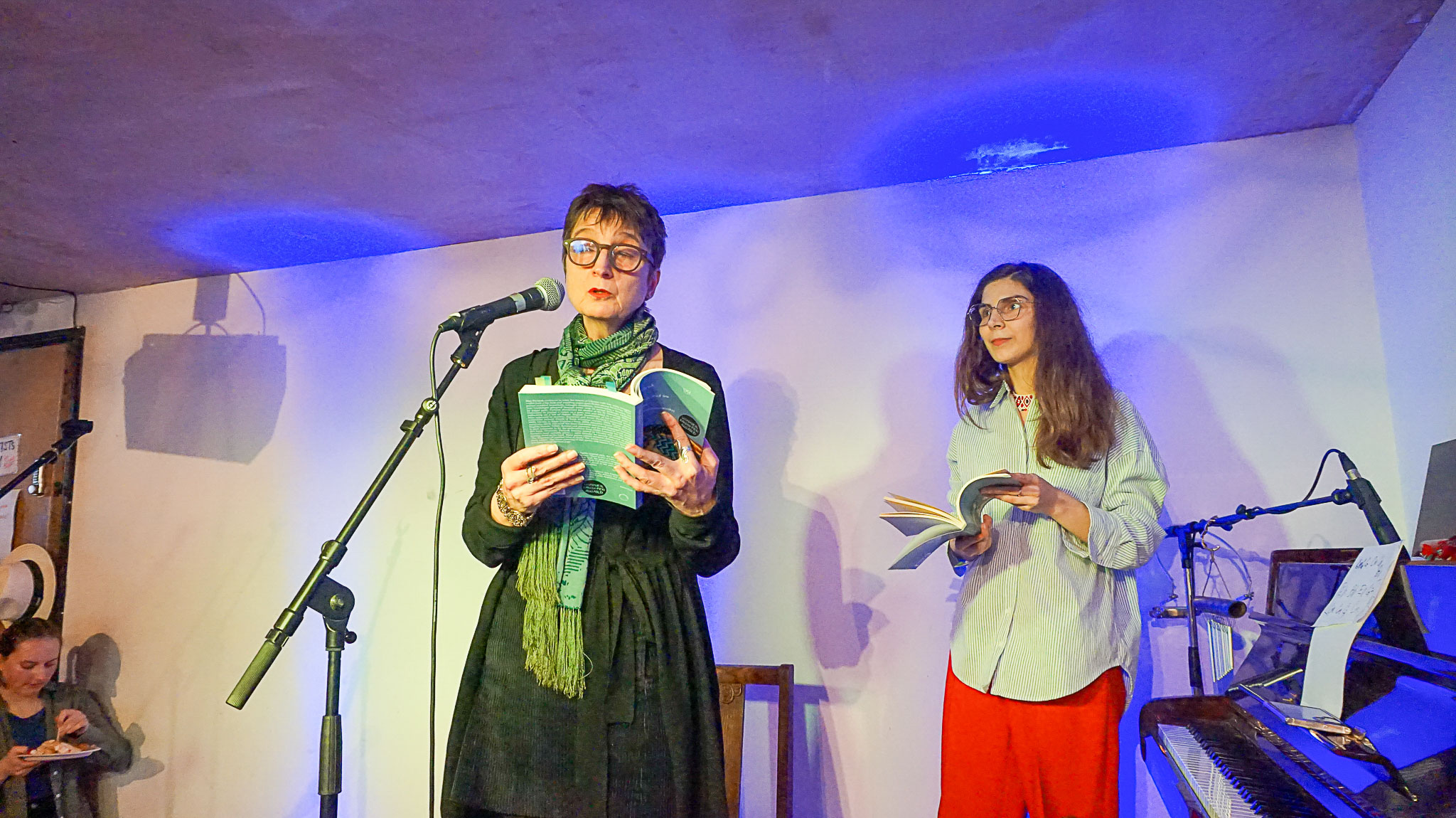
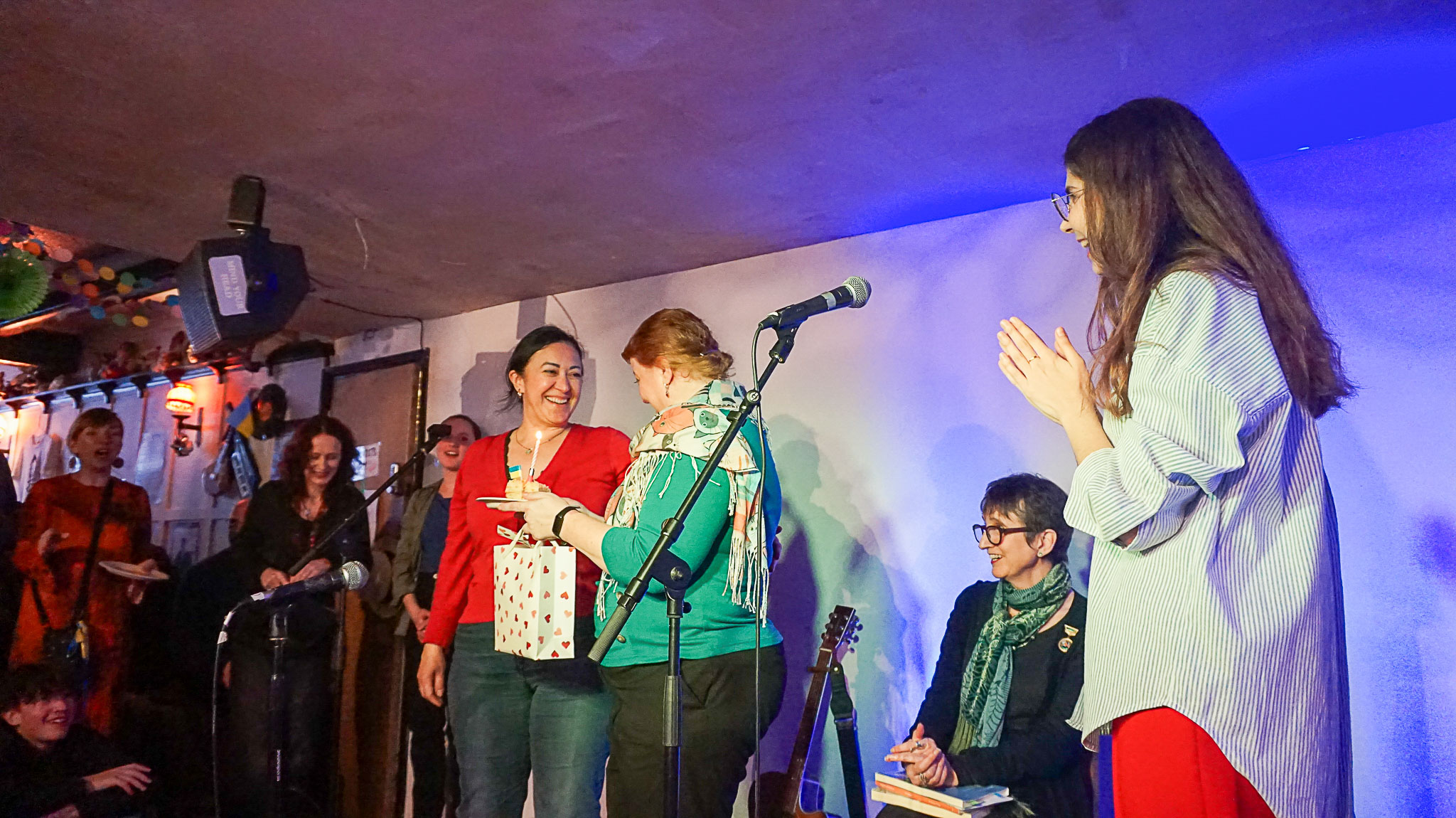
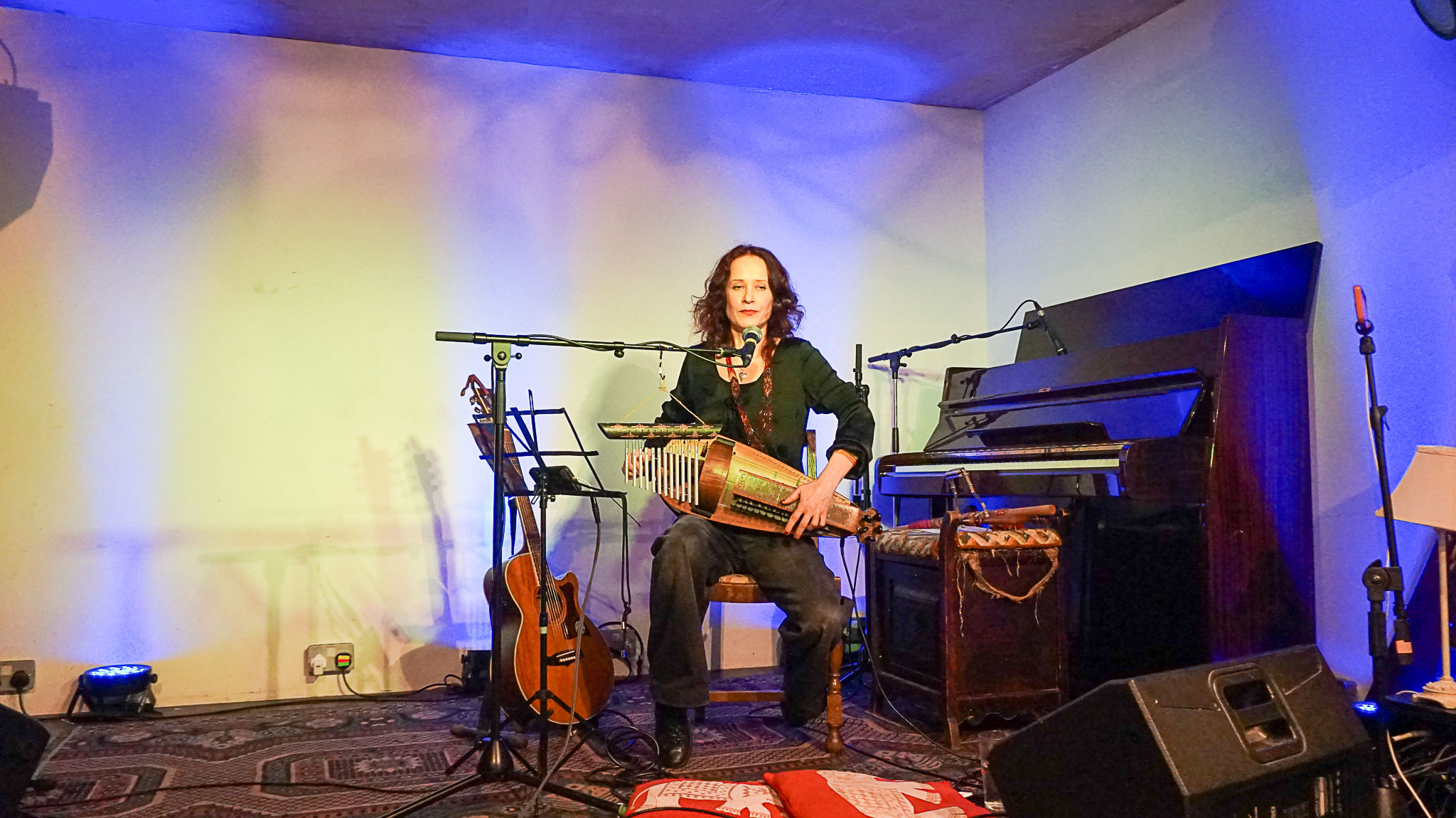
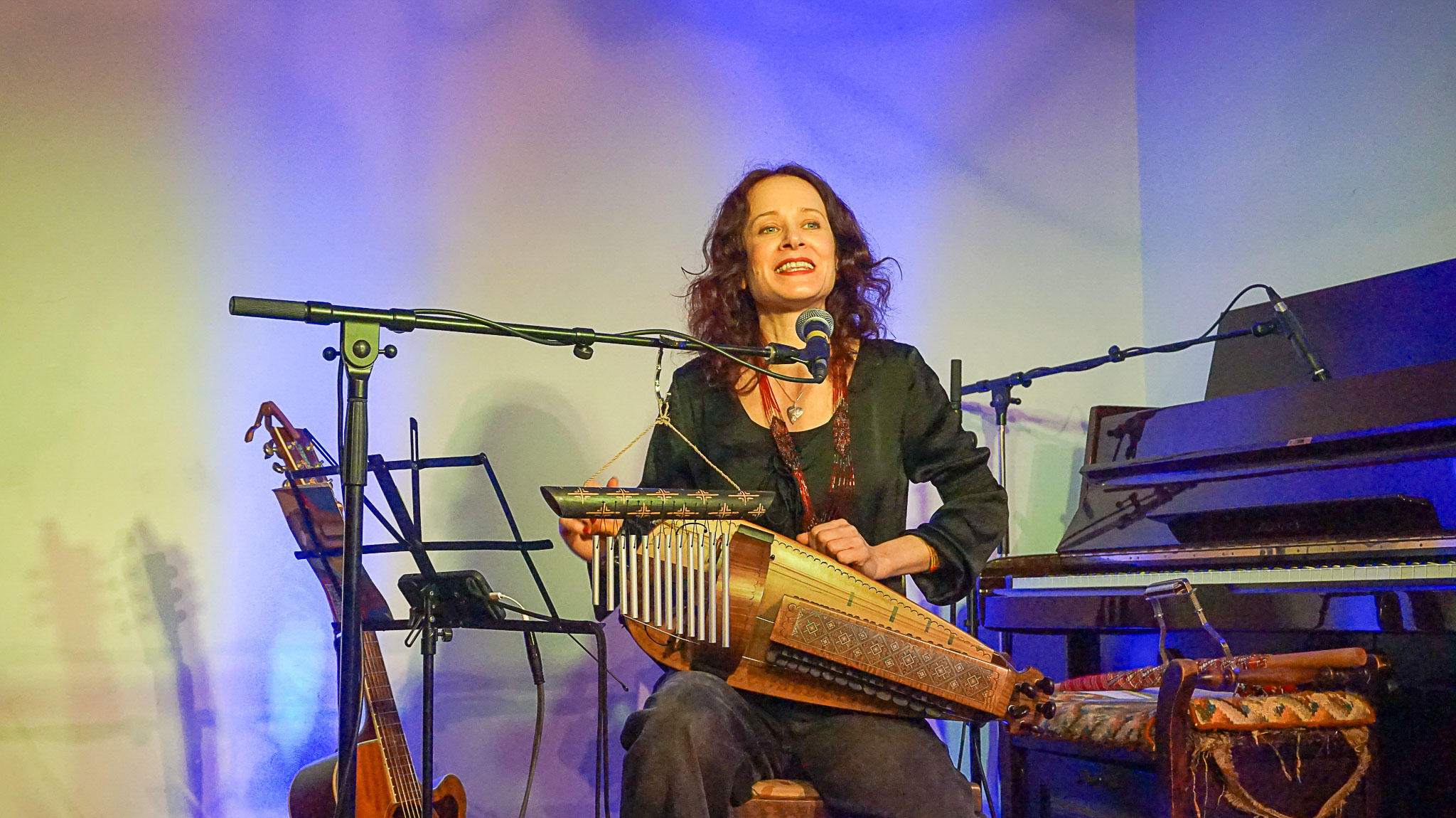
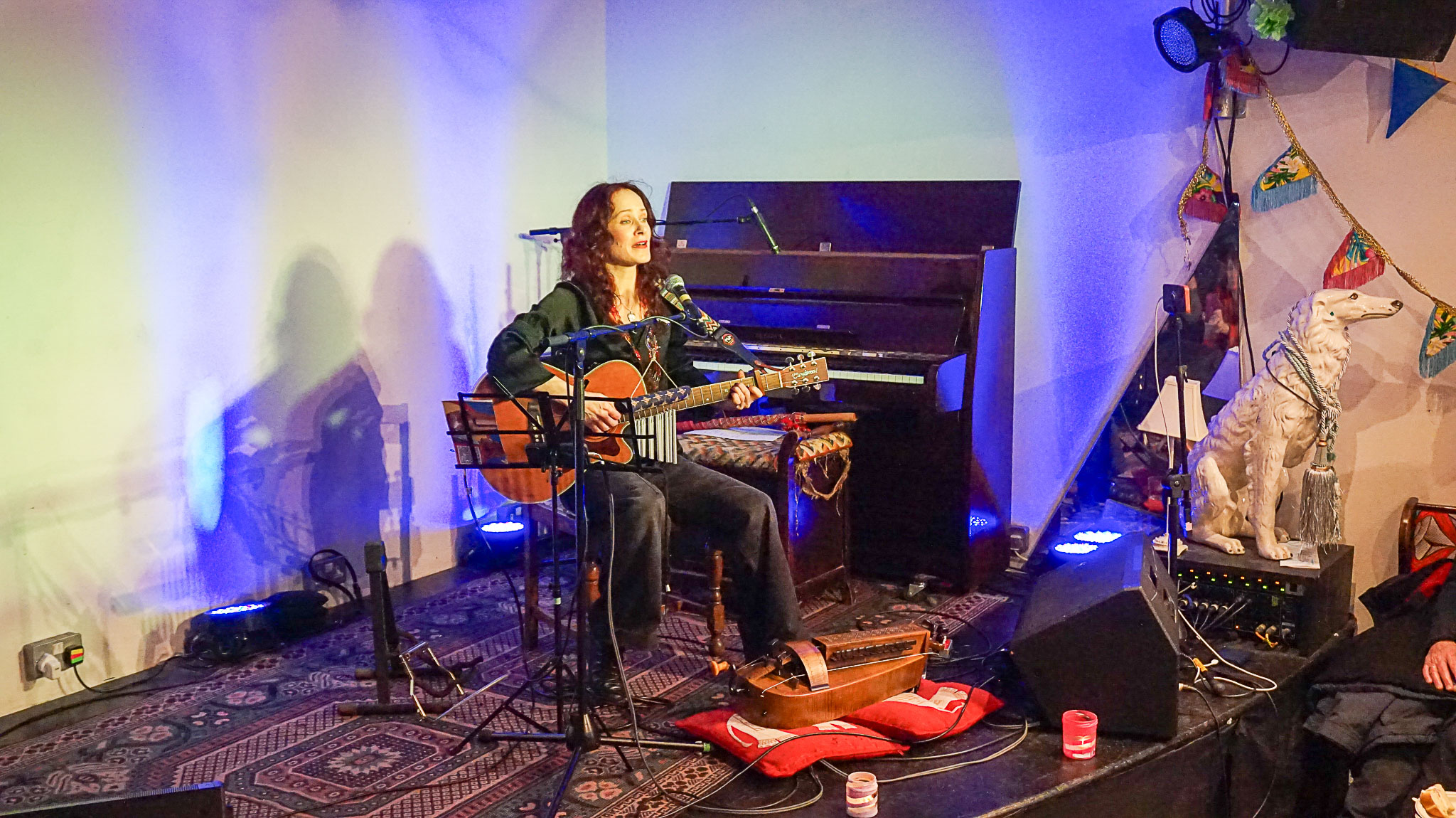
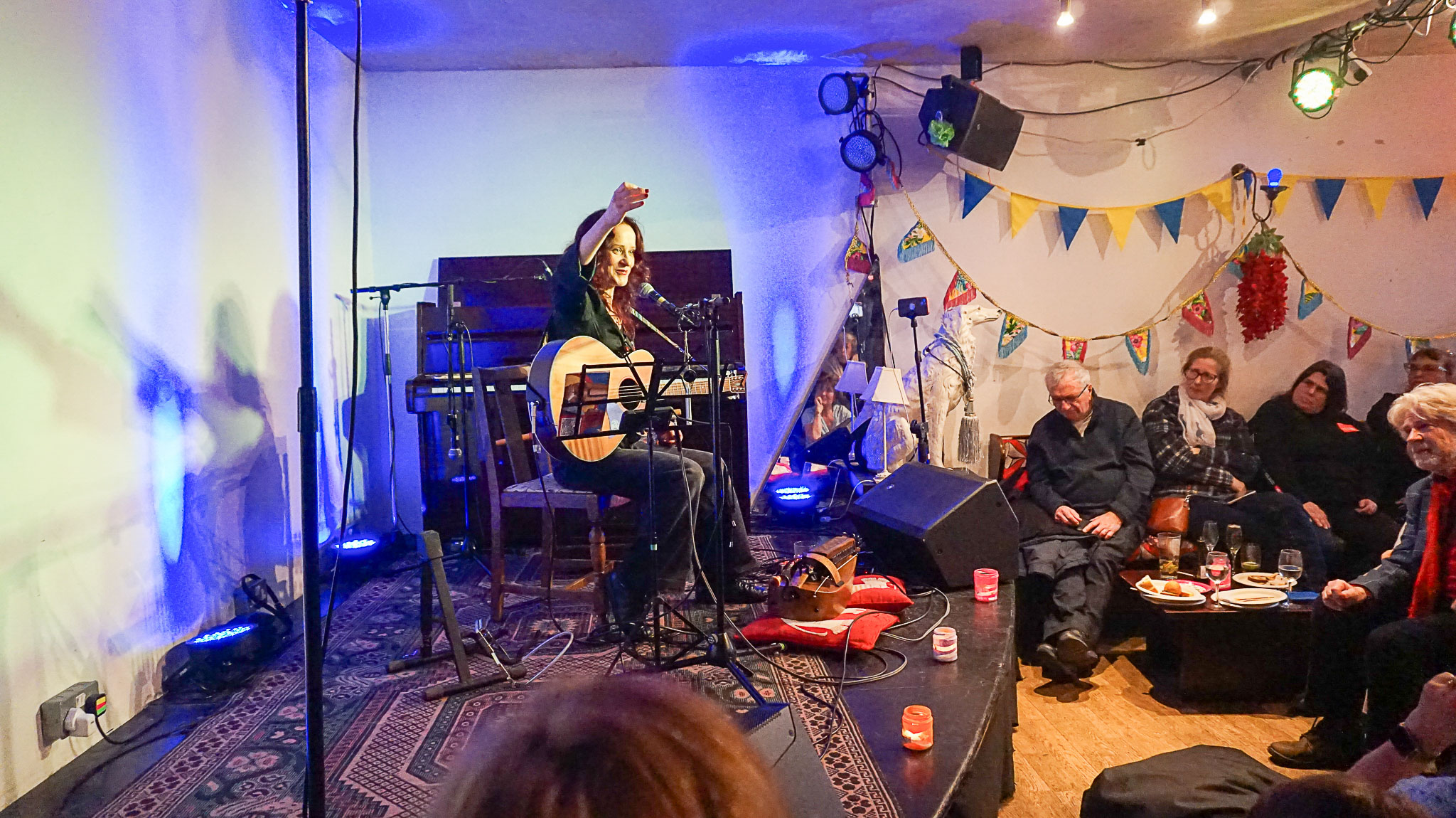
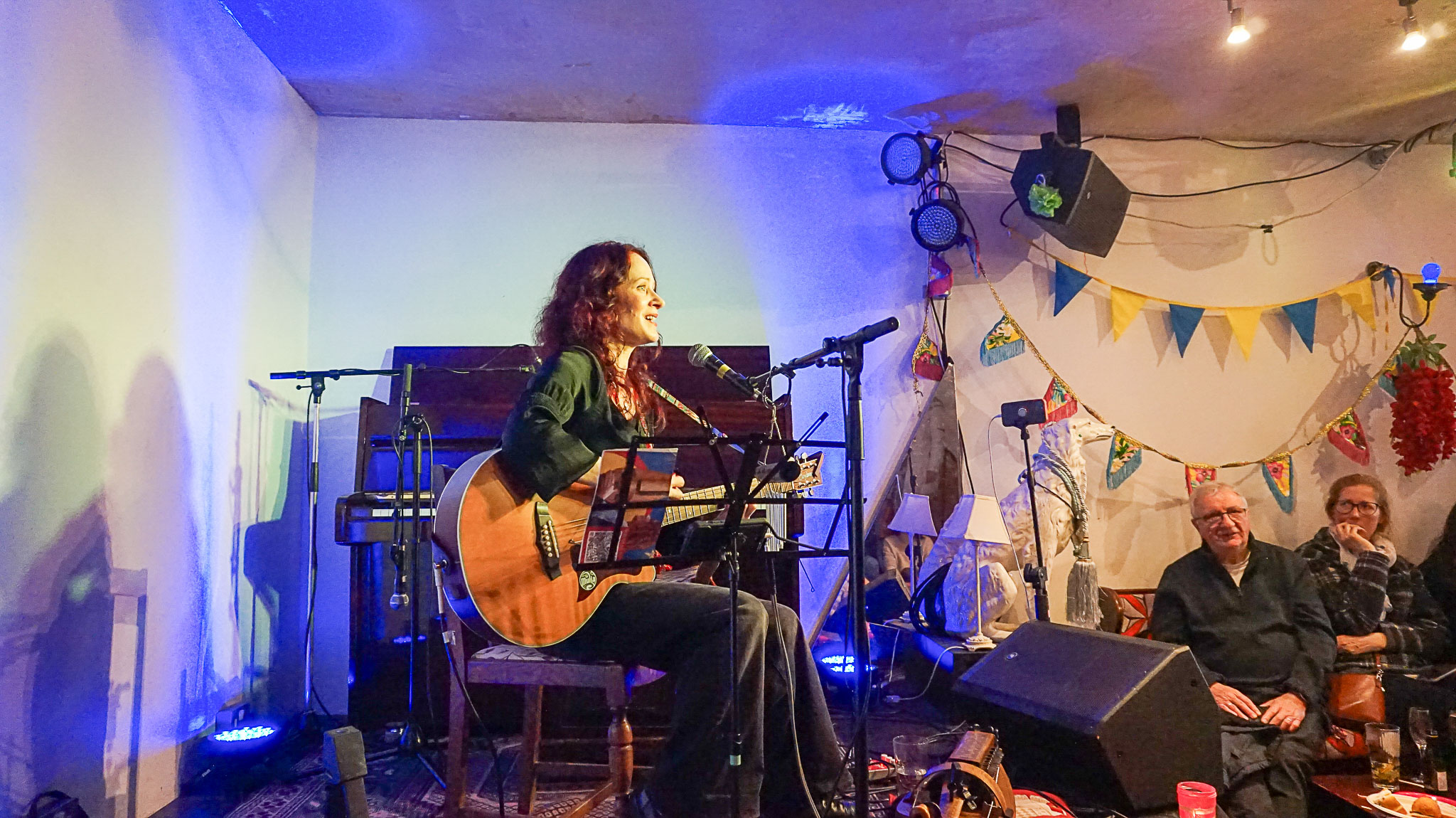
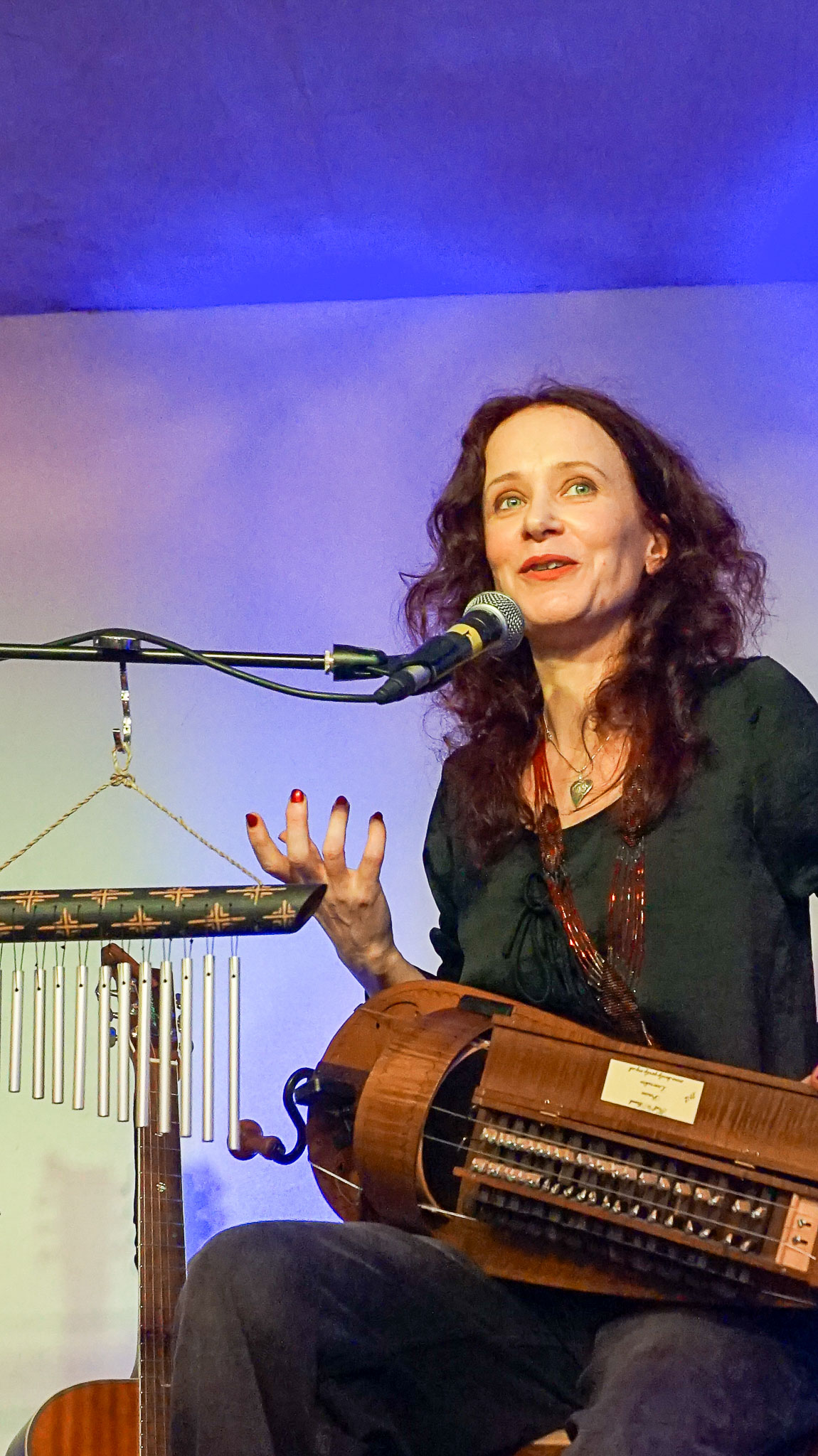
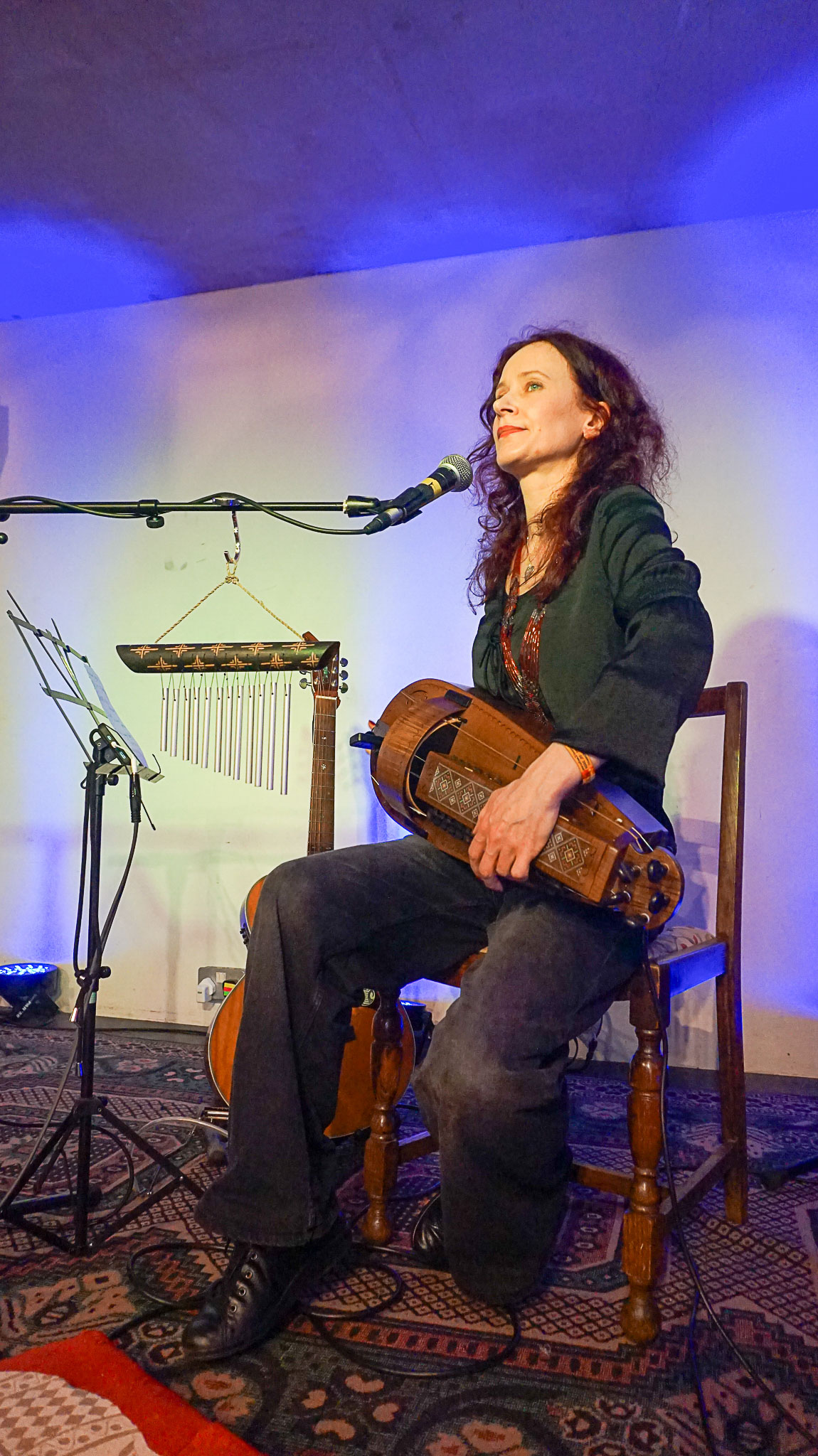
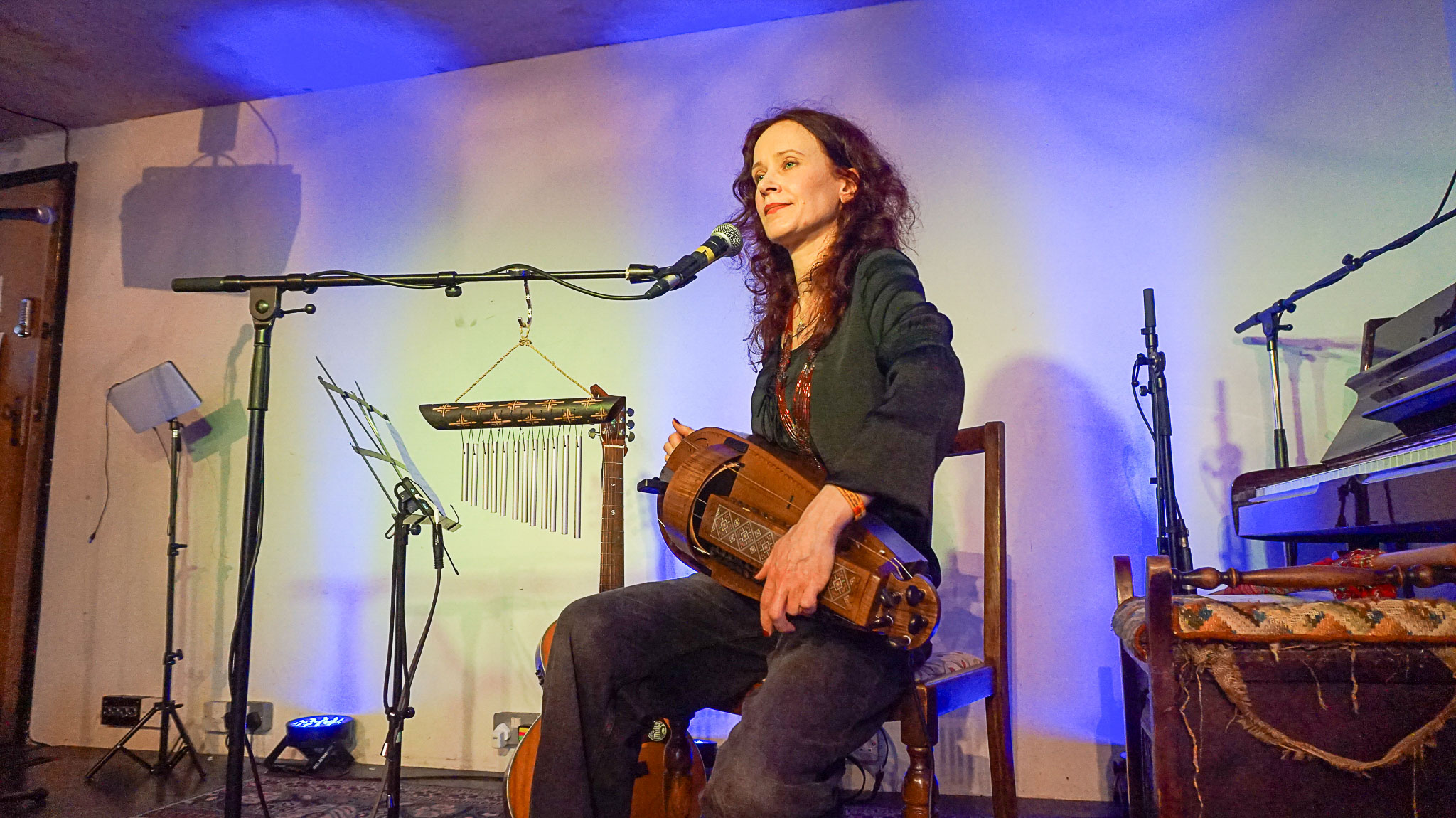
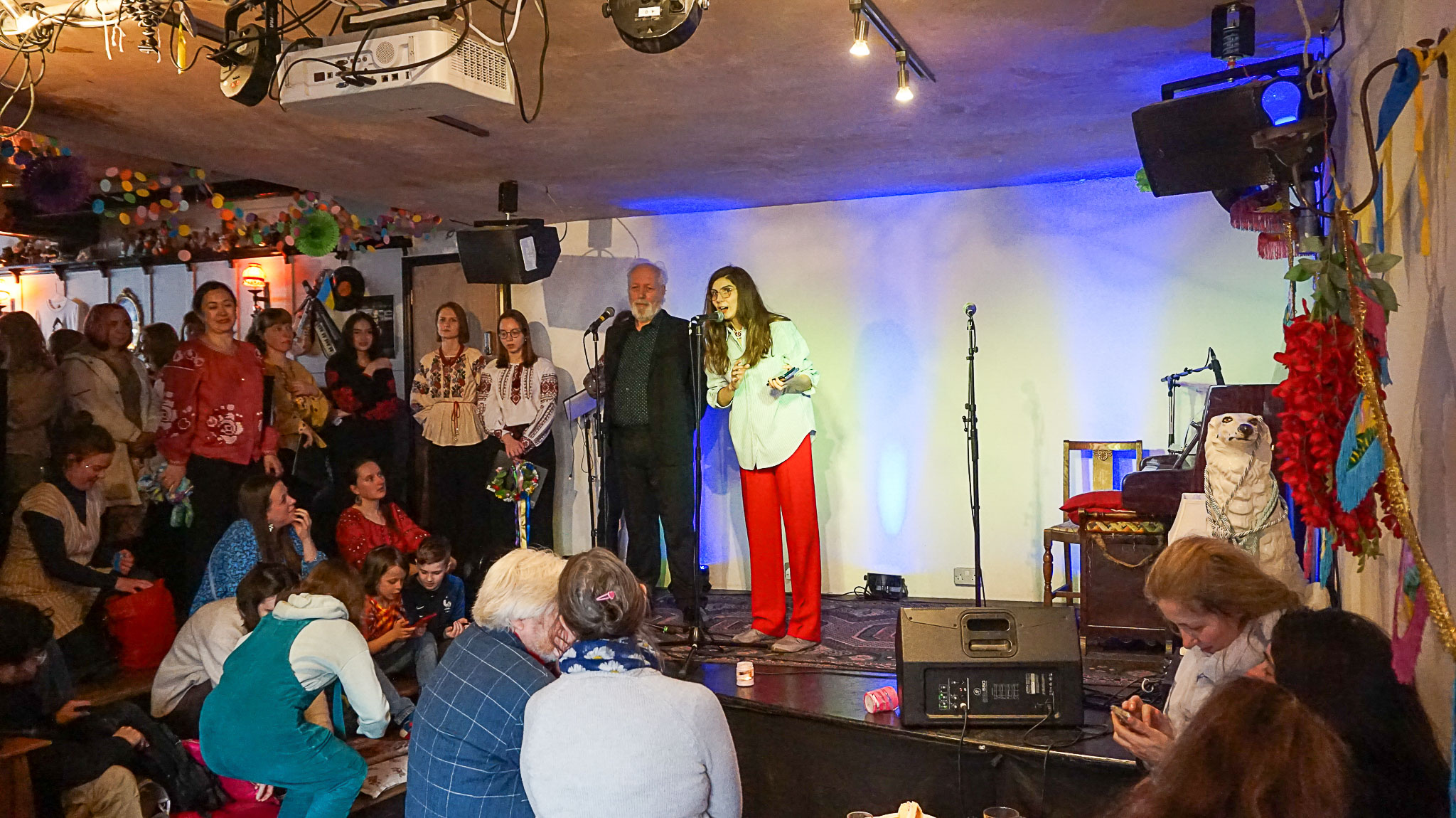
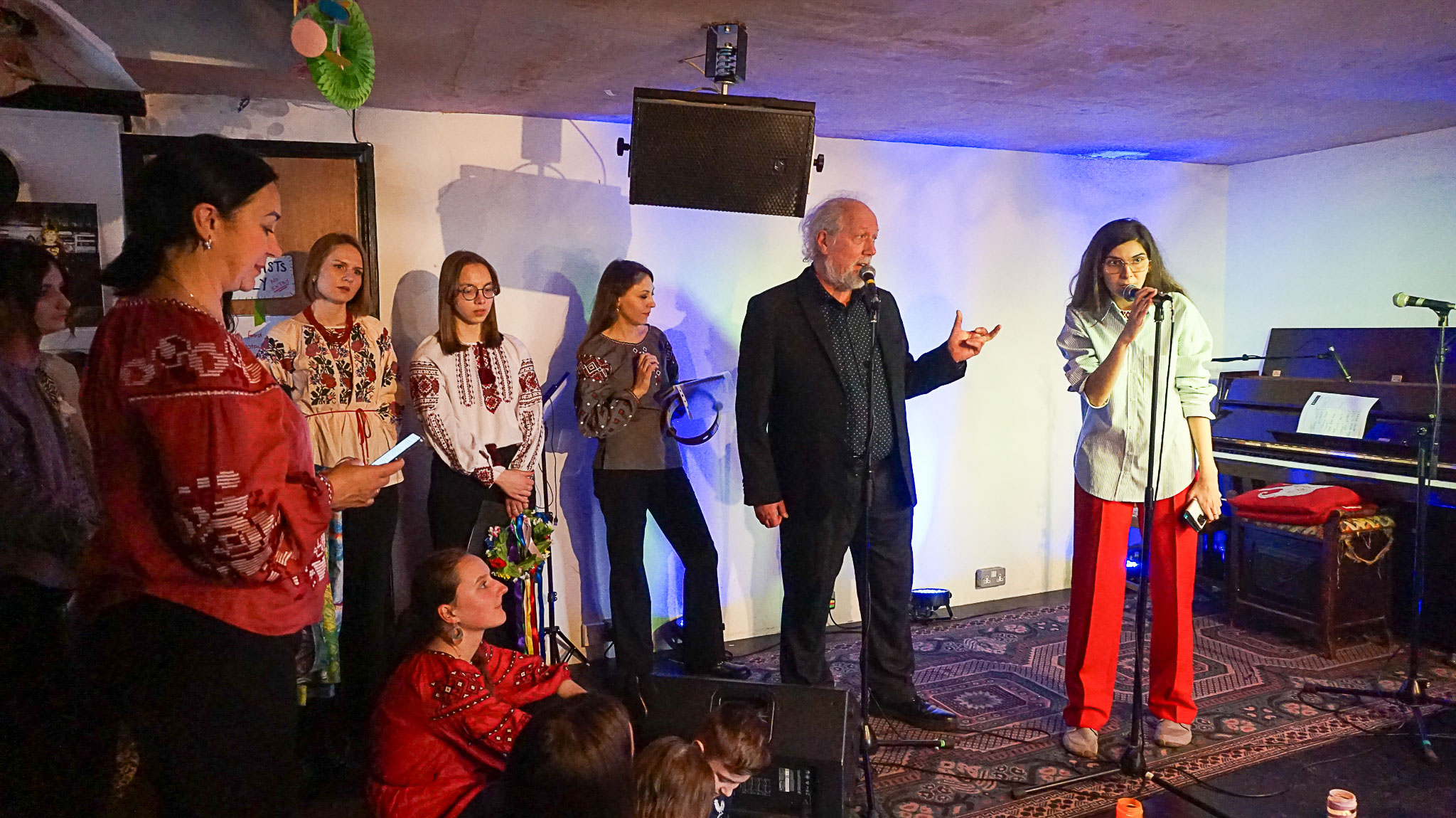
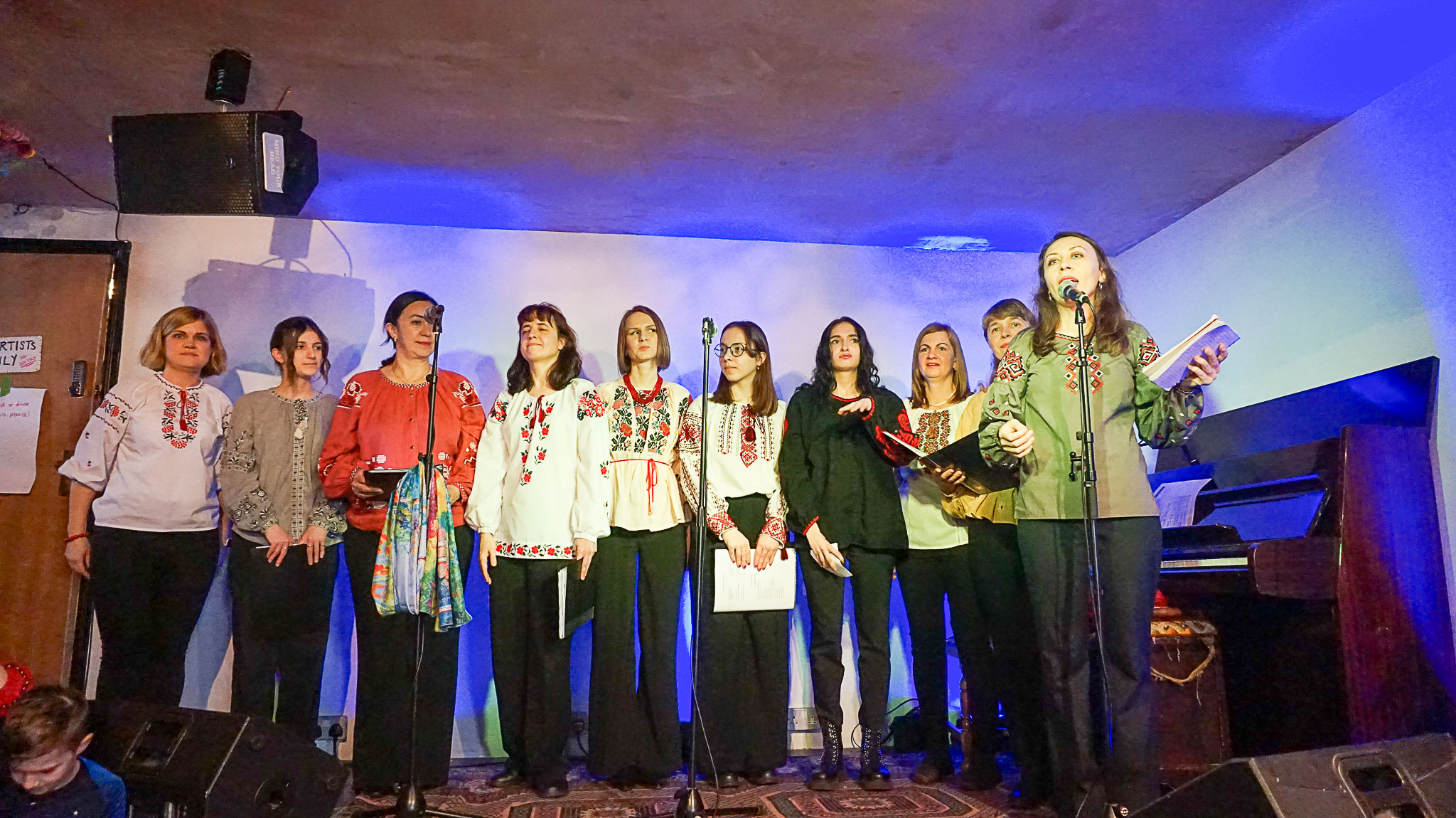
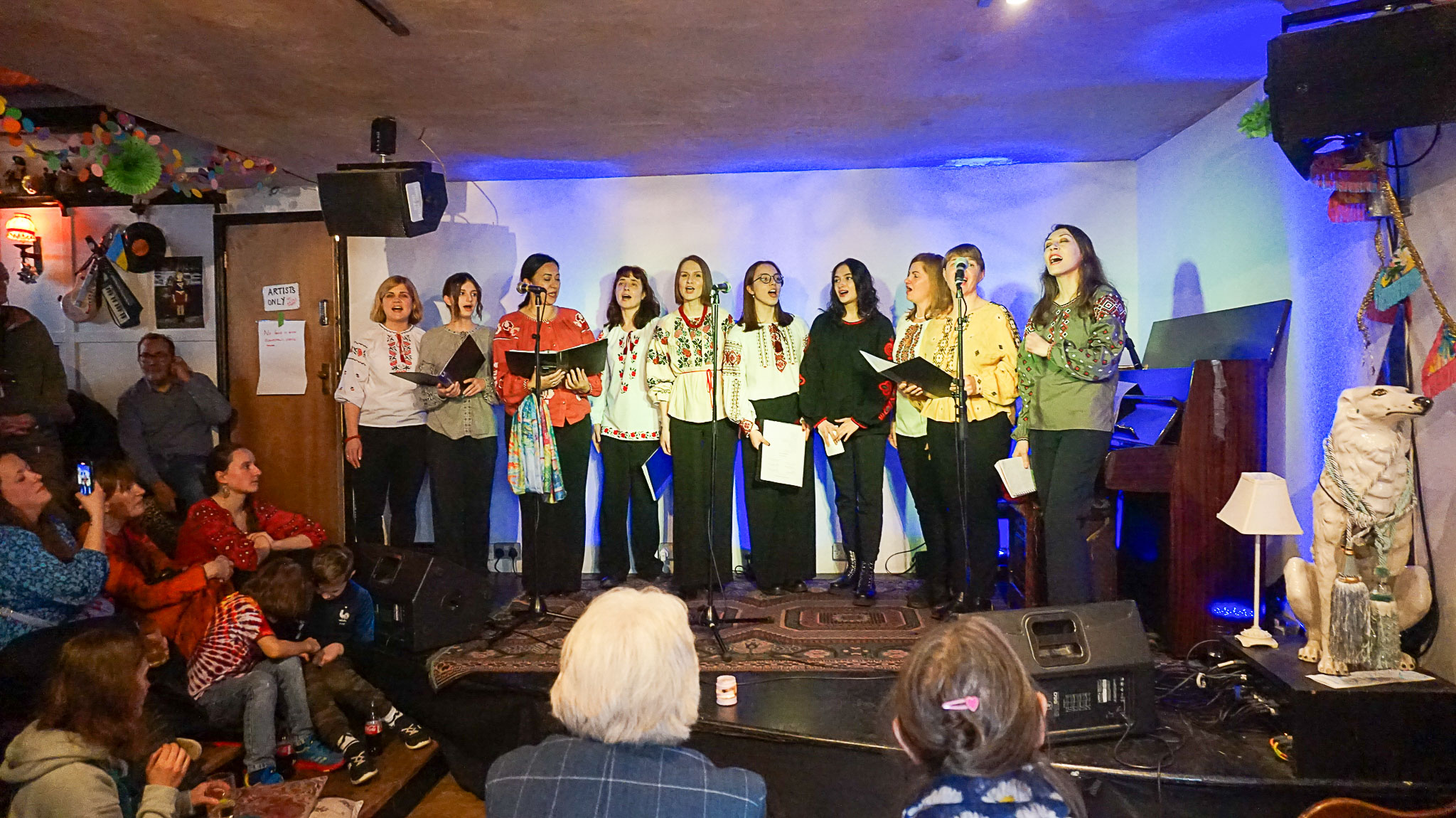
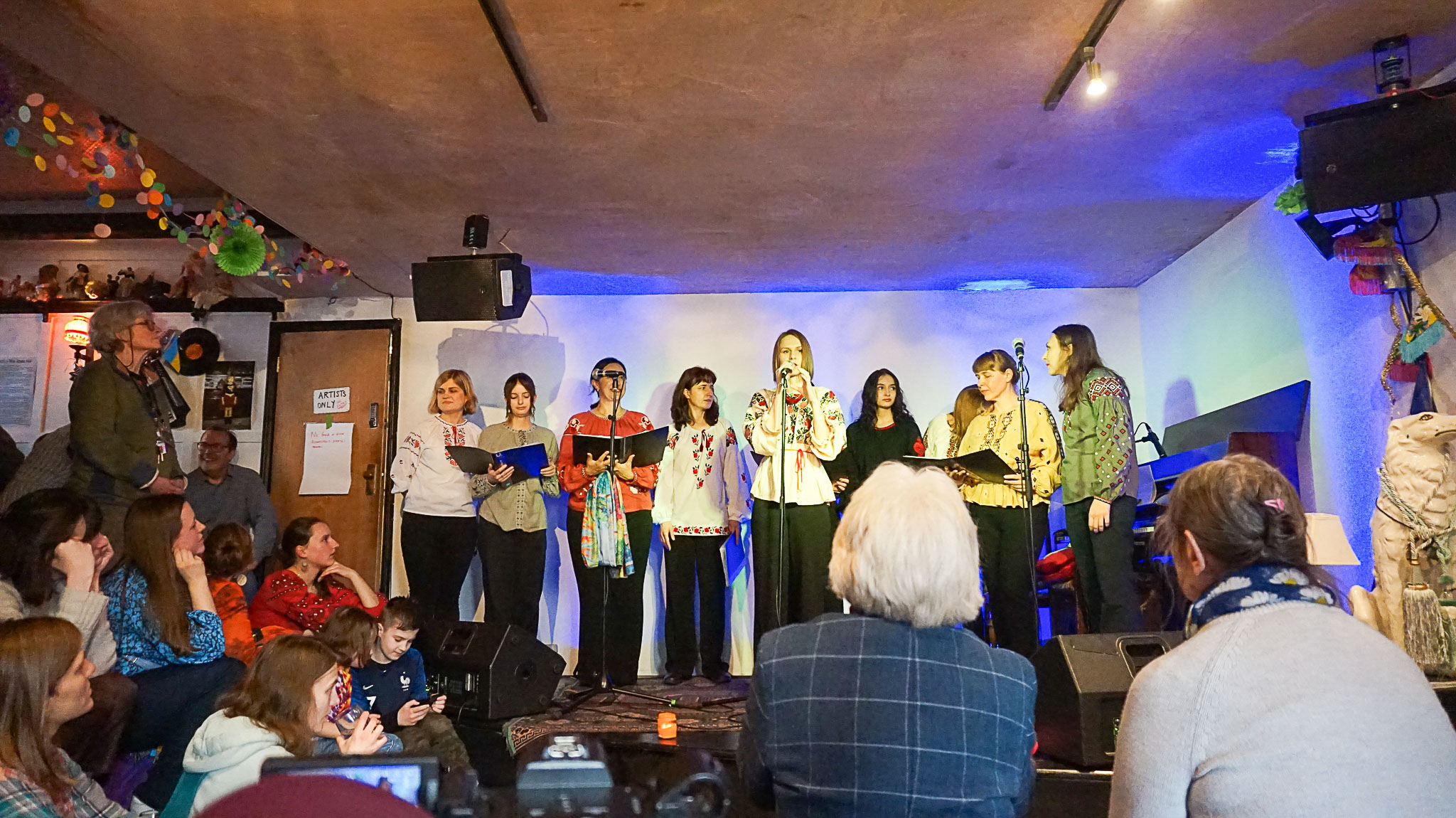
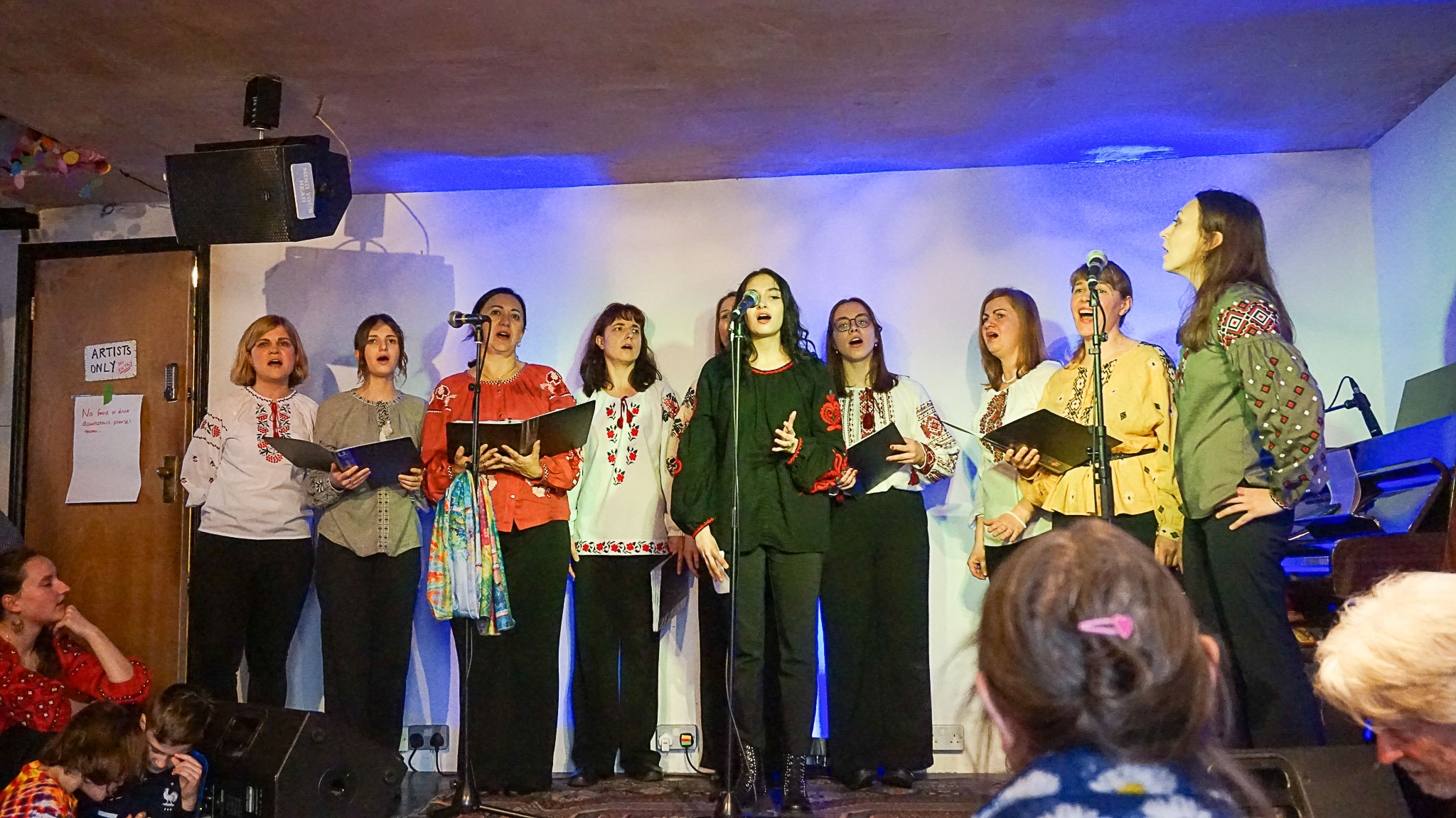
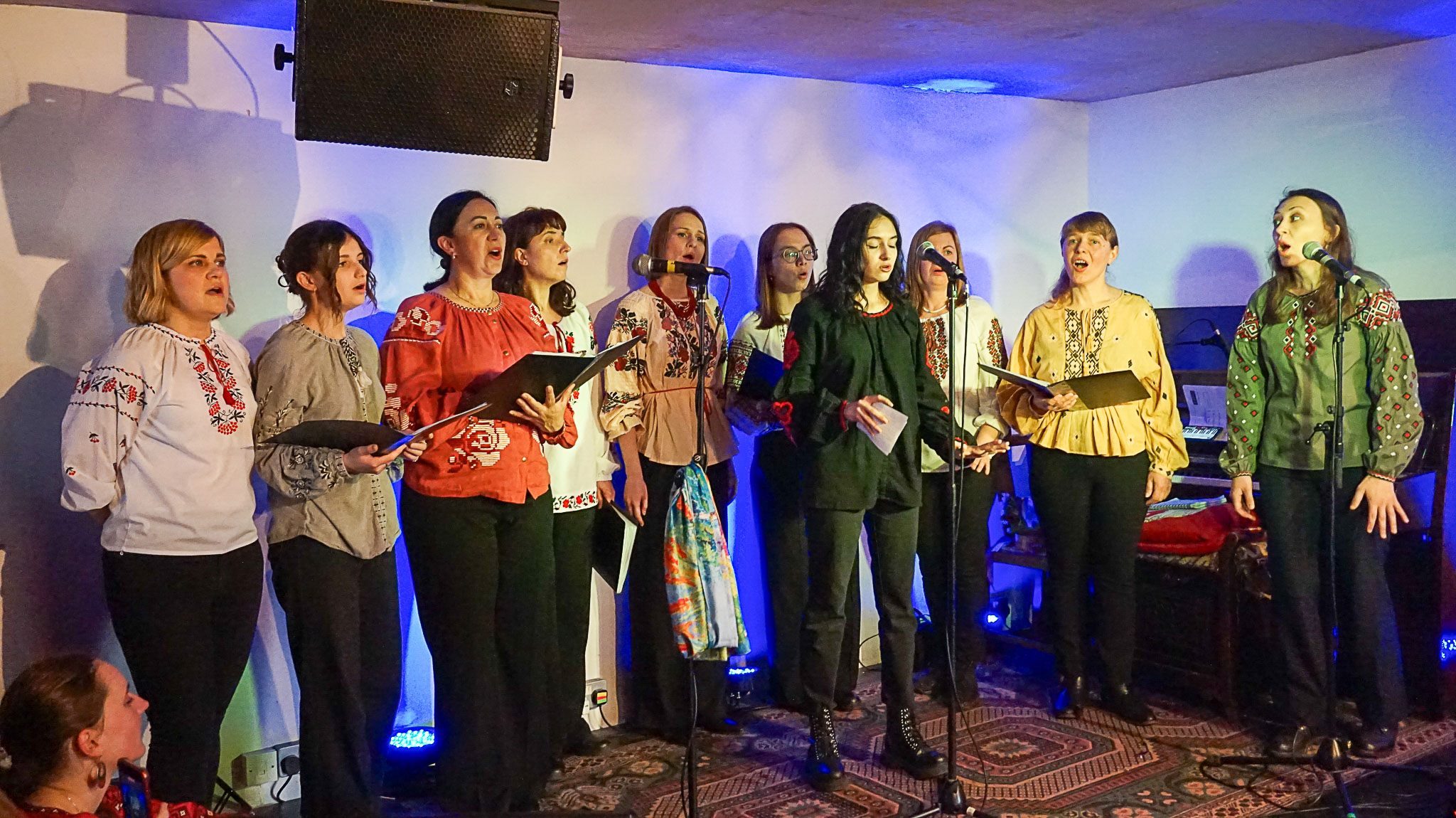
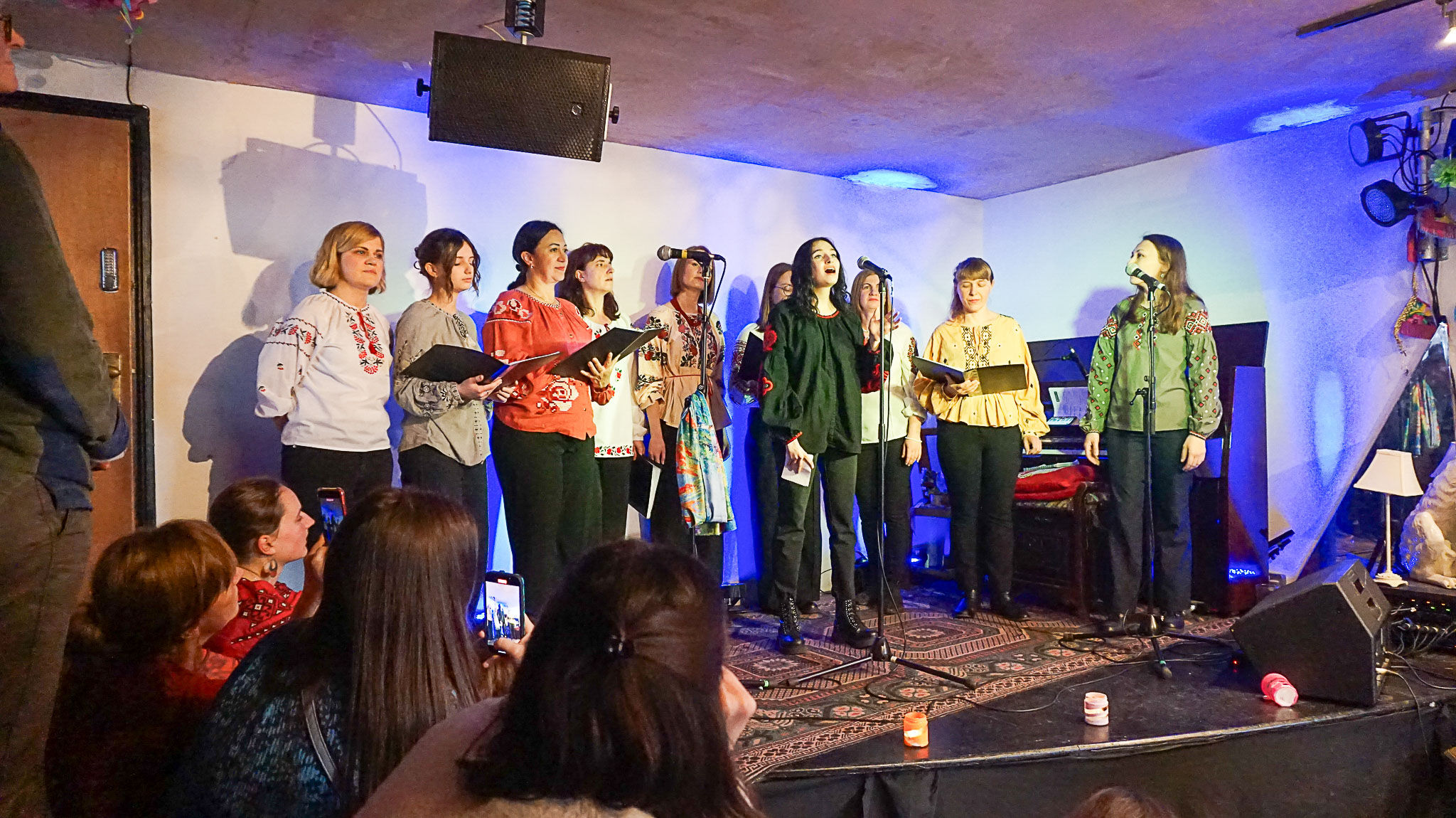
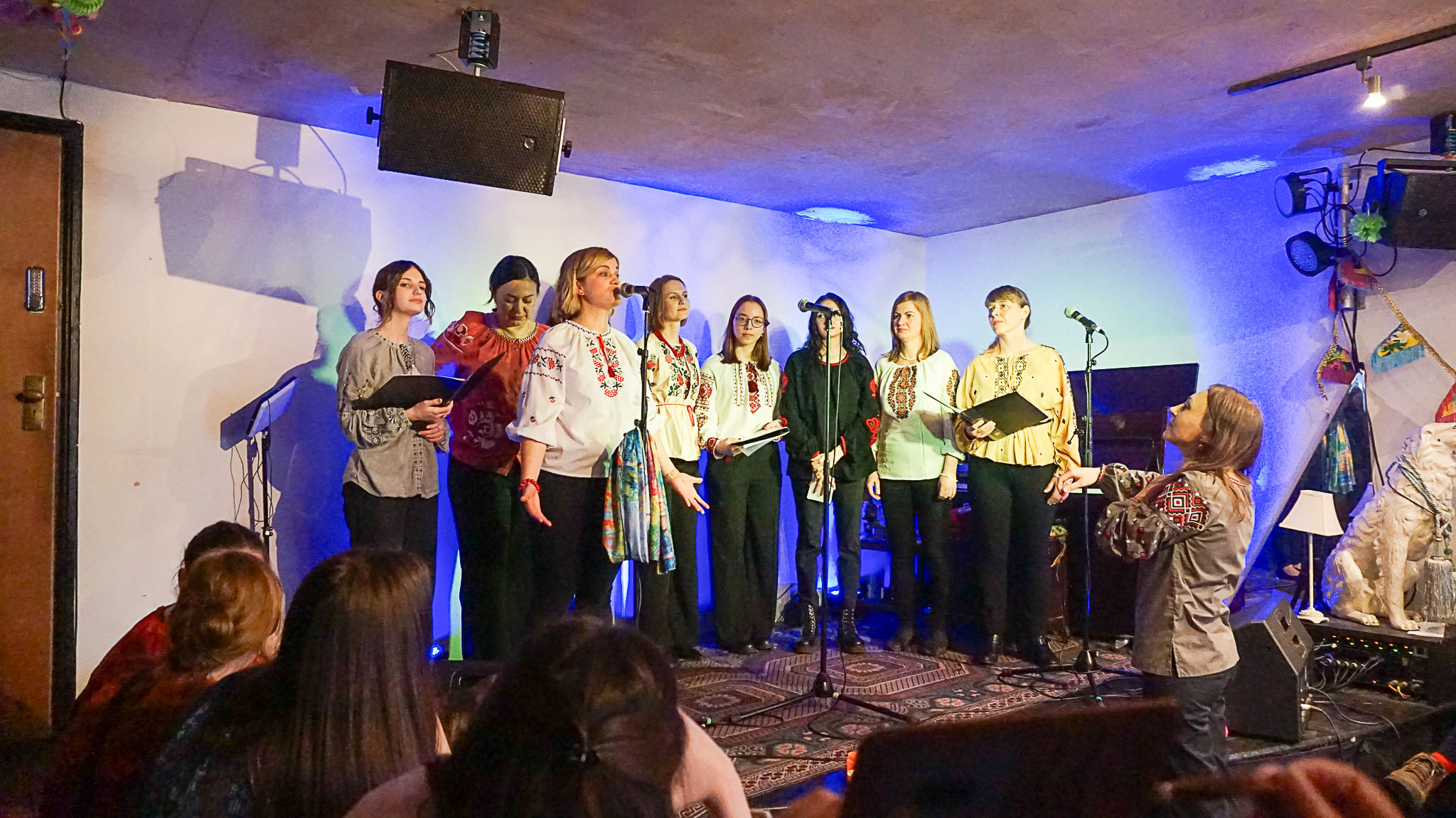
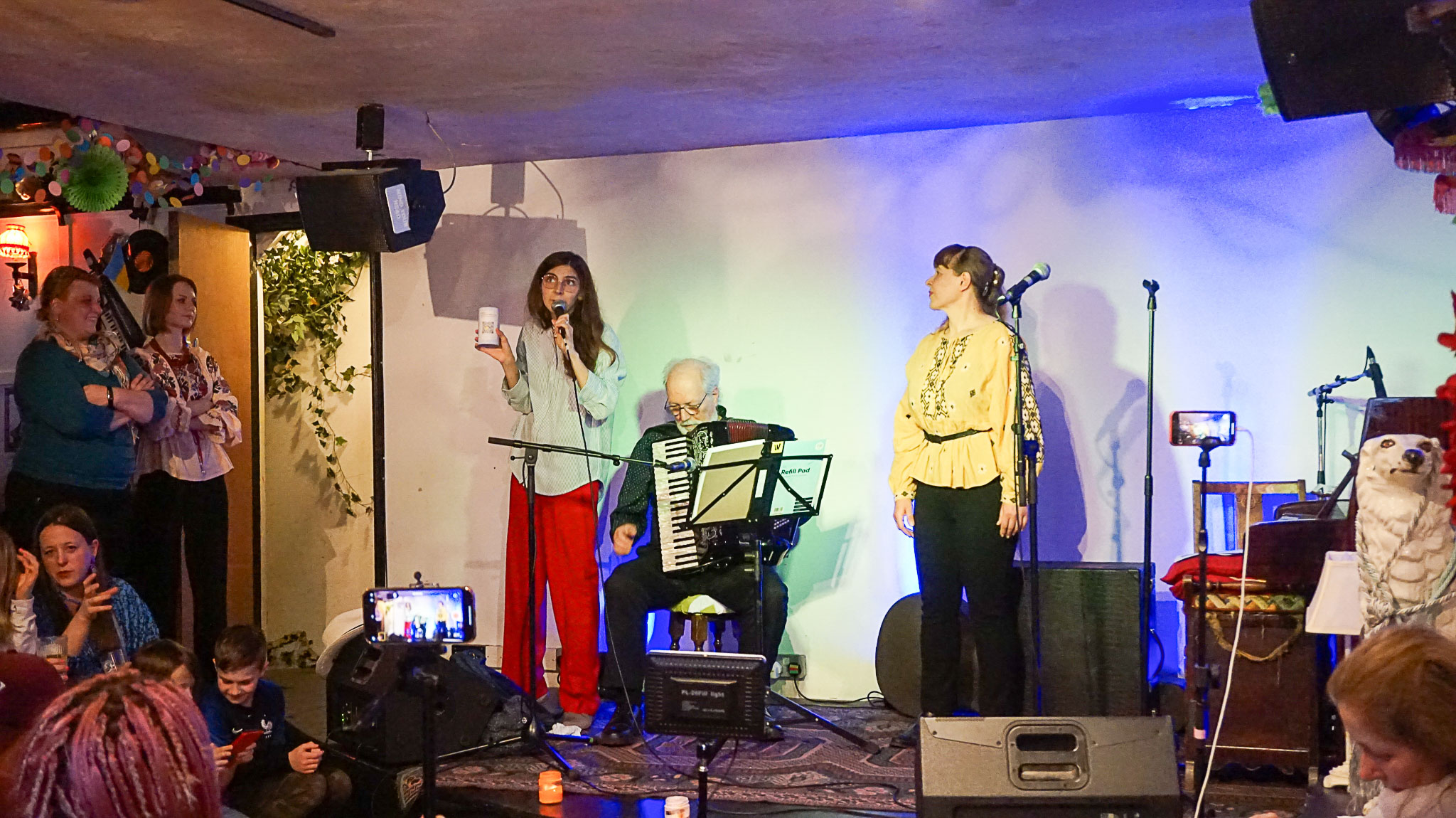
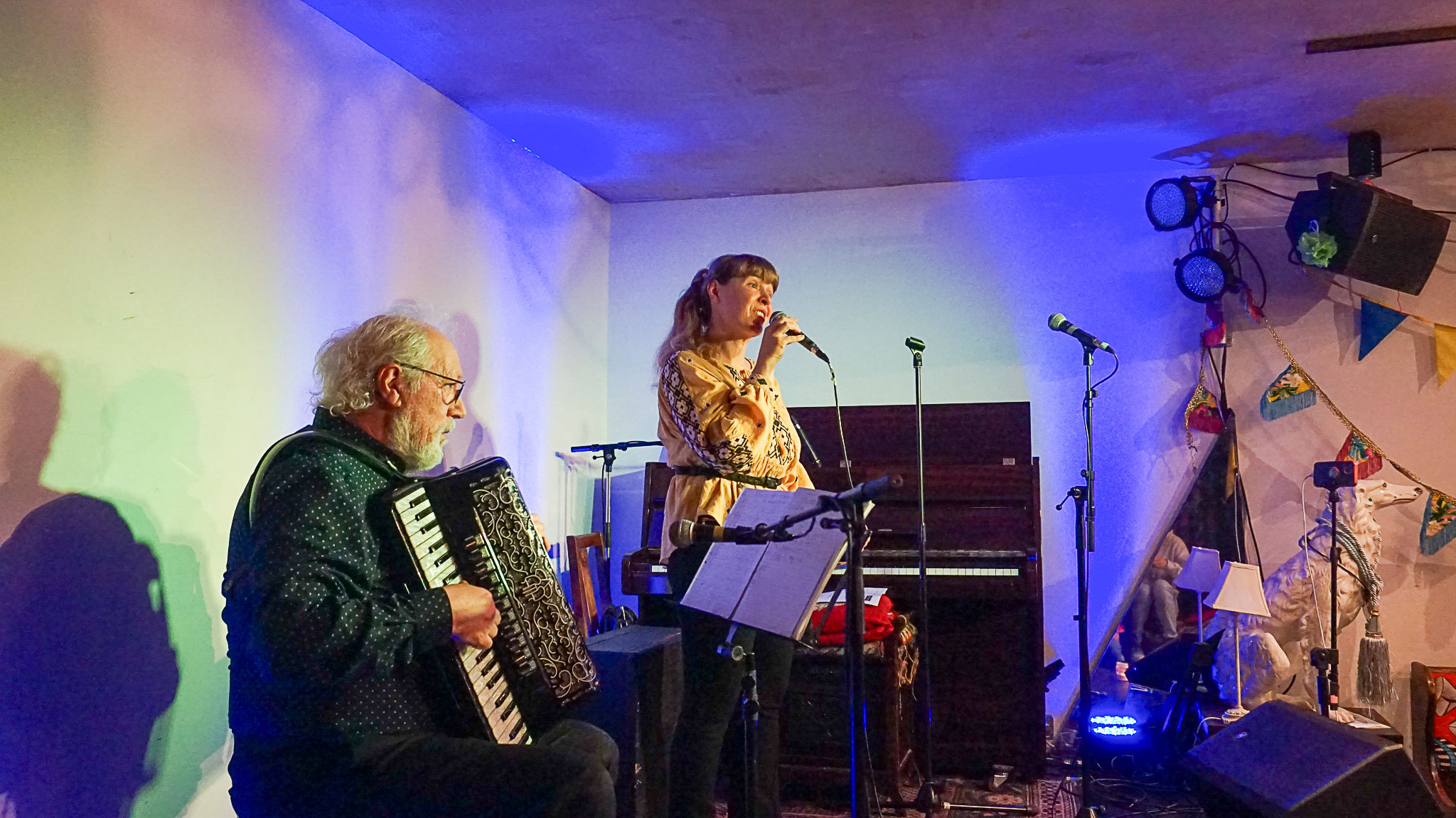
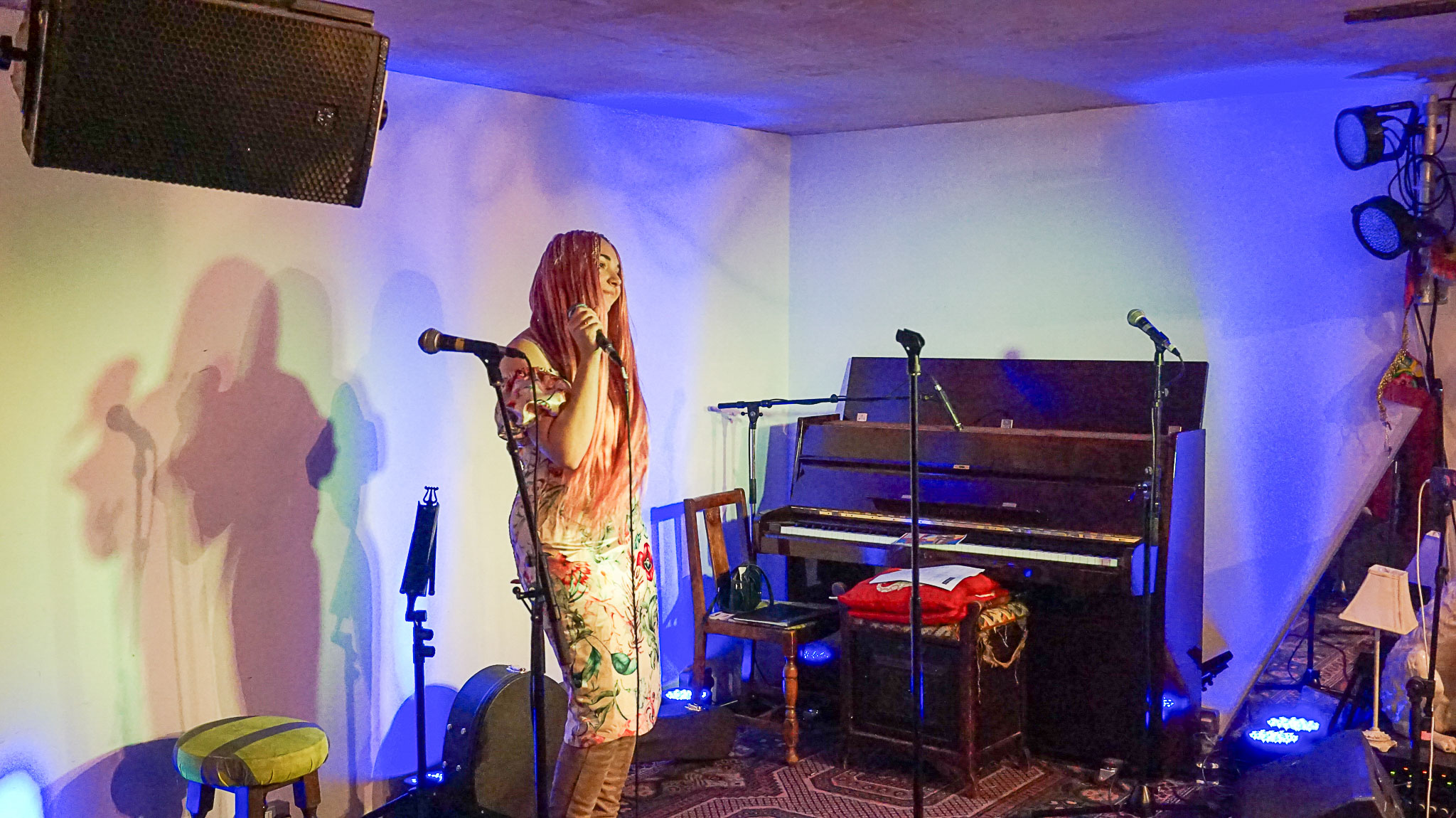
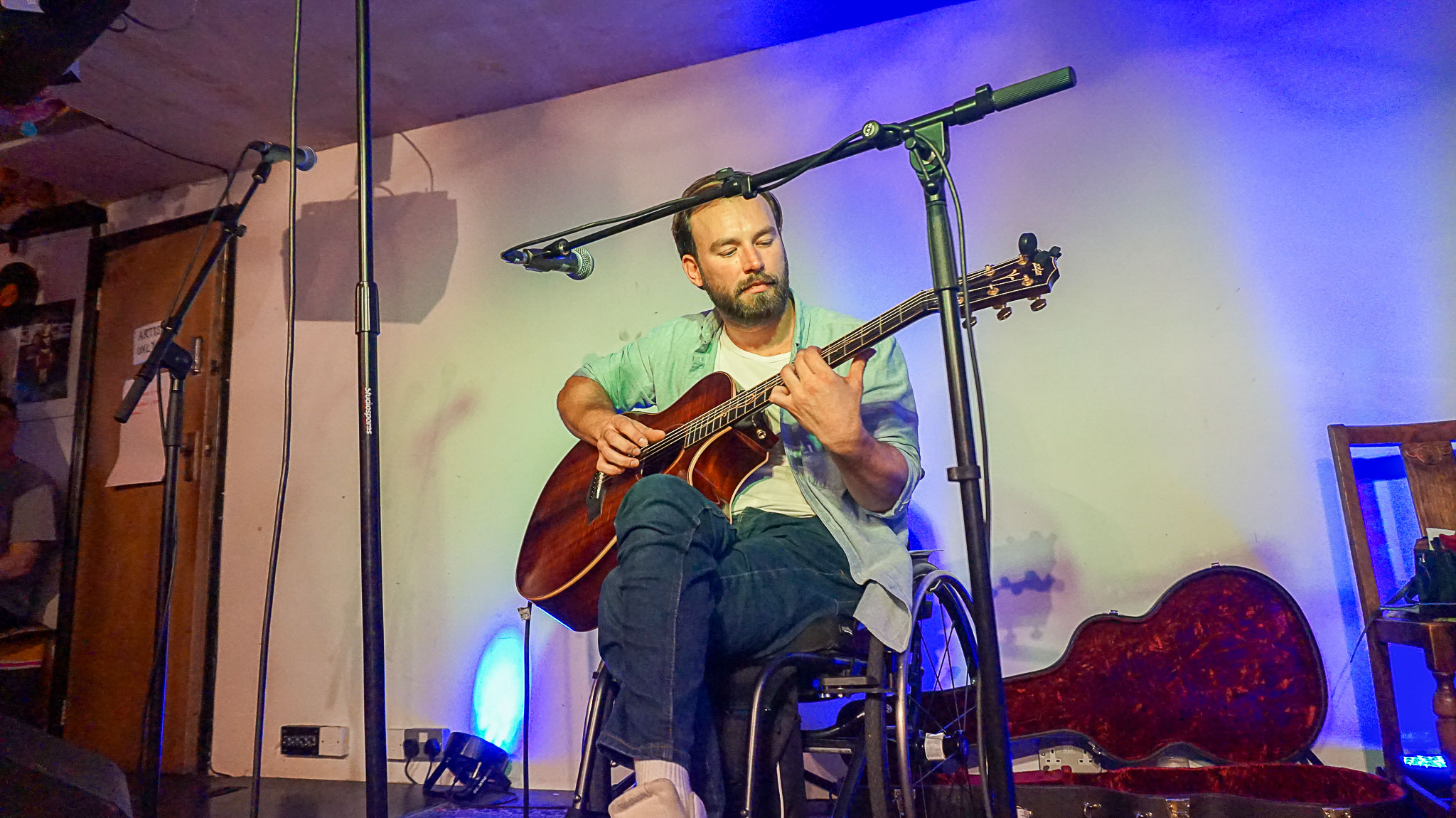
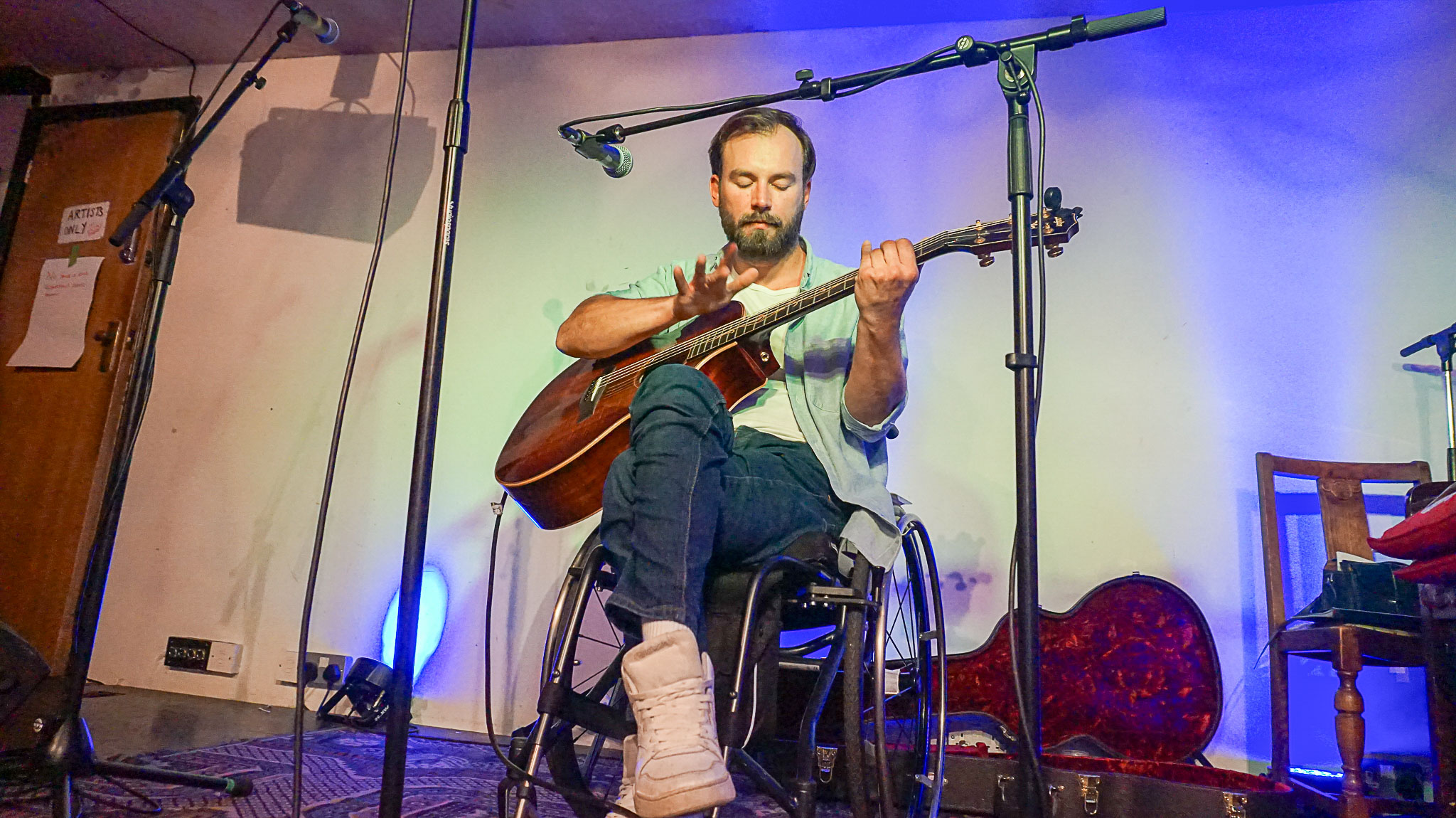
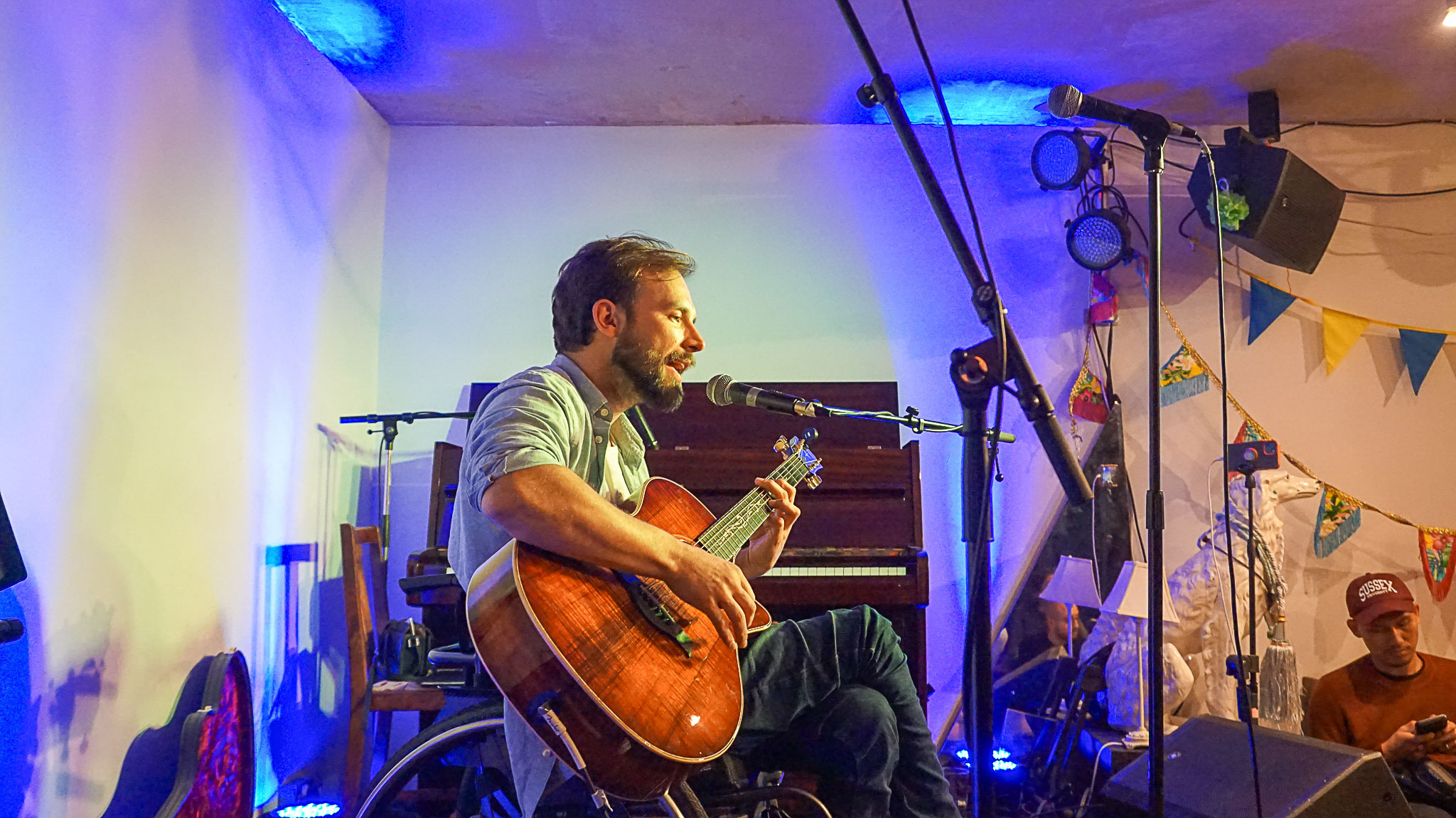
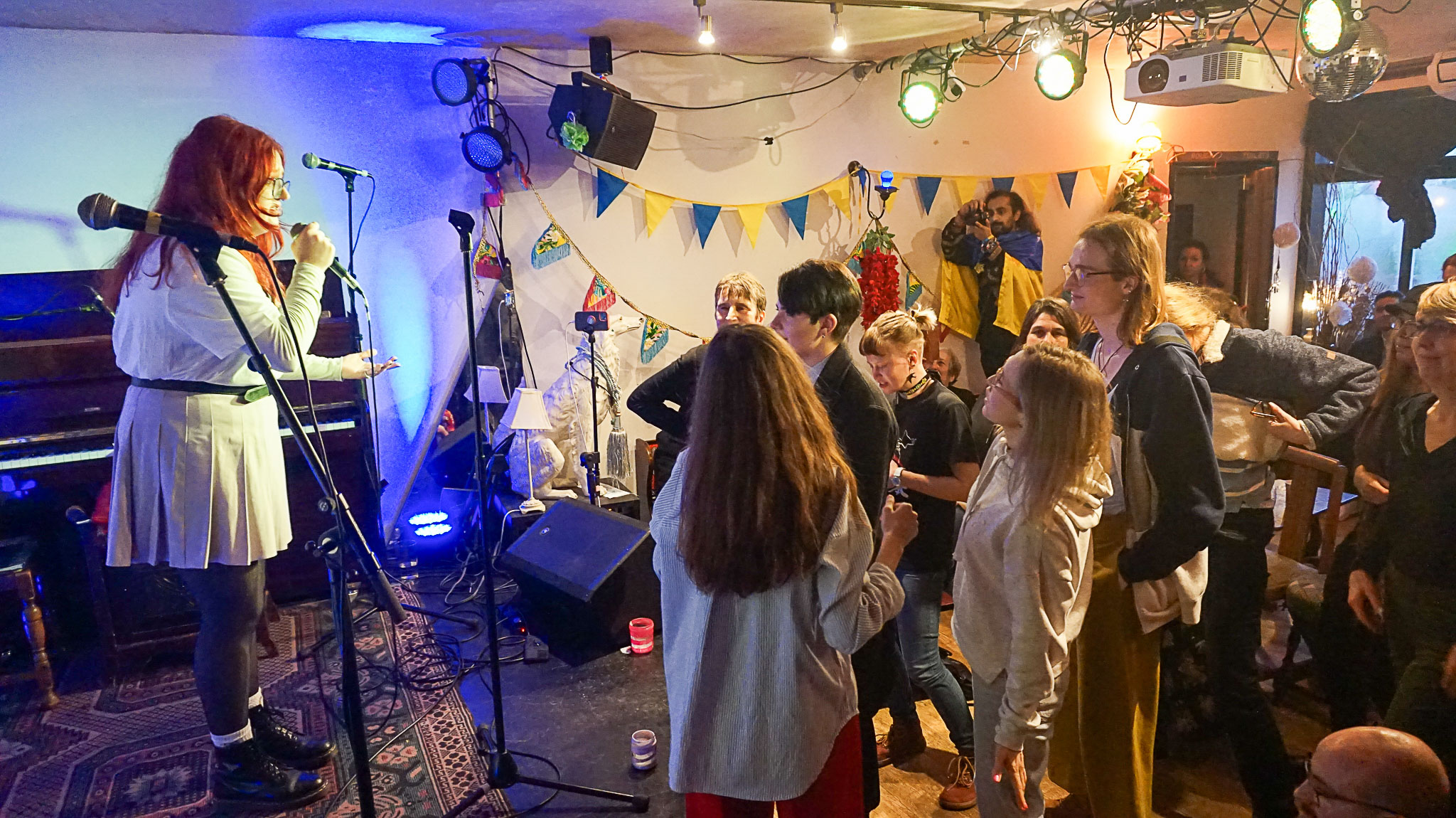
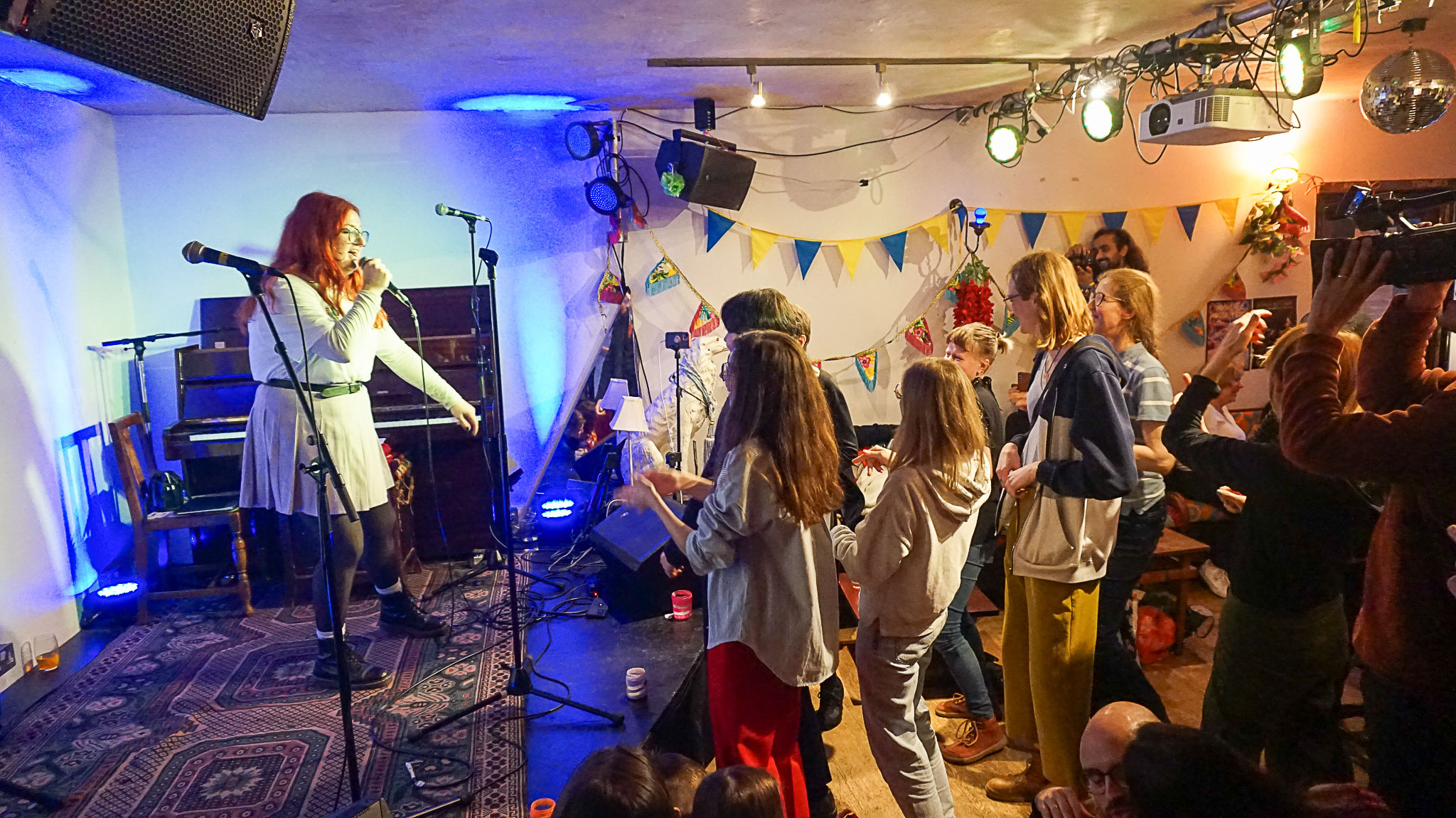
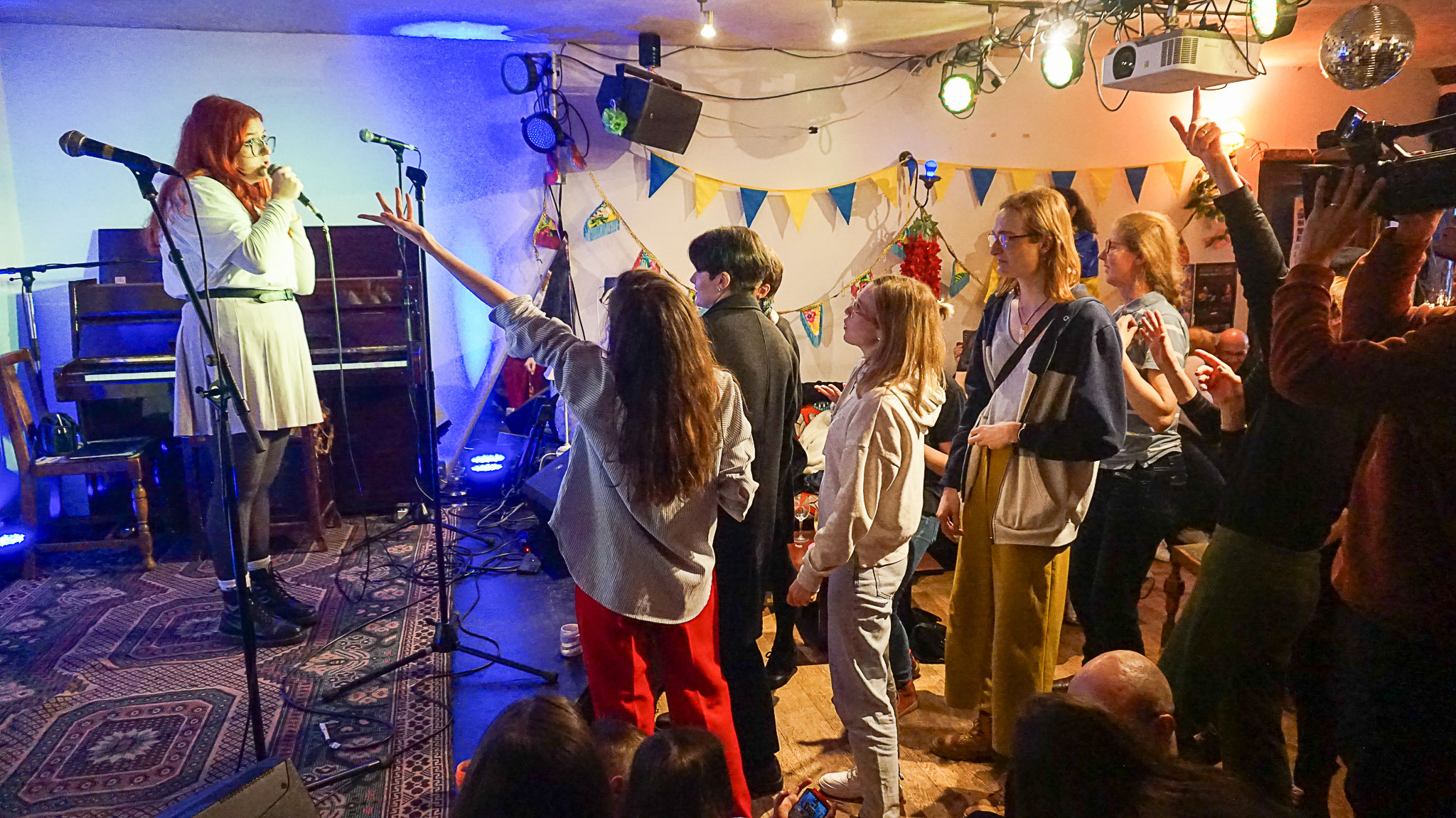
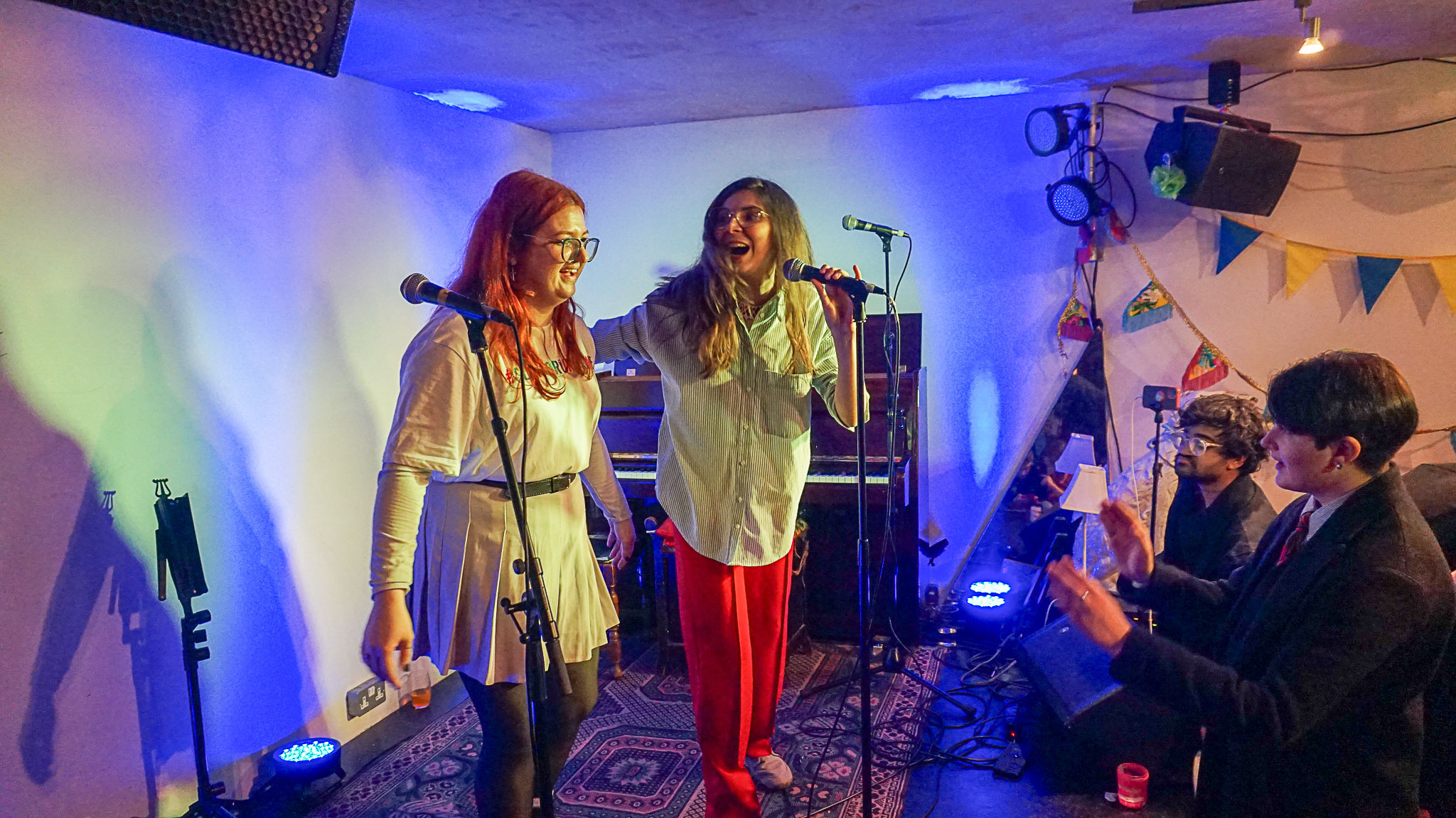
March musical guests include:
Iryna Muha
Ukrainian Voices
Founded in 2022, the Ukrainian Voices are a Brighton-based community choir created to share Ukraine’s
rich musical heritage with audiences in Brighton and beyond.
While their repertoire spans a range of genres, from heartfelt ballads to reggae, they also have plenty of upbeat folk tunes that will have you tapping your feet and clapping along. And if you’re lucky, you might even catch them doing traditional Ukrainian dancing on stage!
Thanks Refugee Radio for including us in their podcast and up coming Radio Reverb show. Hear music from Iryna Muha’ and Ukrainian Voices as well as chatting about Razom!
